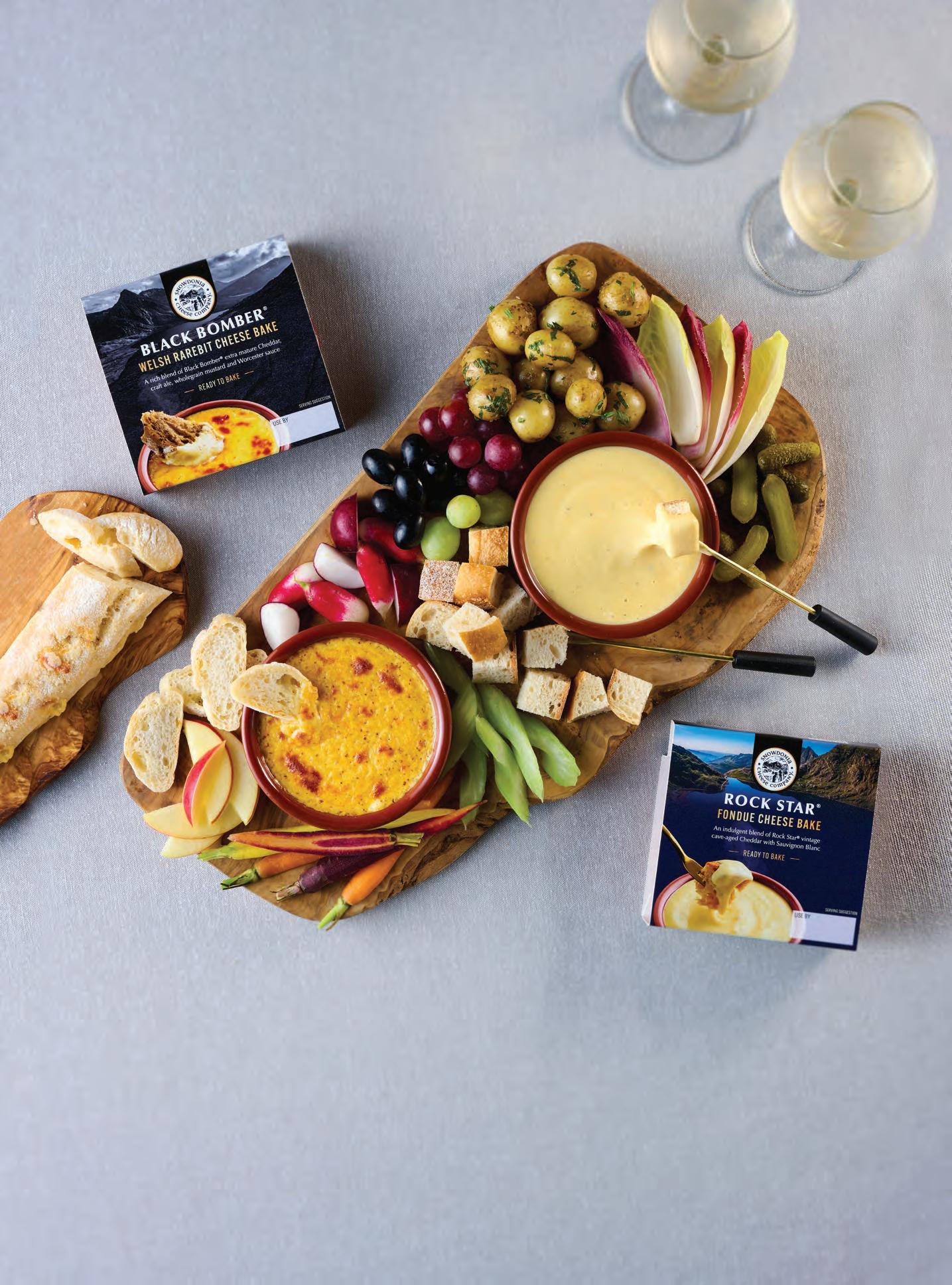Use your loaf
Find out how independent retailers are making bread work for them

ALSO INSIDE Step inside The Balloon Tree farm shop
Speciality & Fine Food Fair preview
The English wine revolution


Find out how independent retailers are making bread work for them

ALSO INSIDE Step inside The Balloon Tree farm shop
Speciality & Fine Food Fair preview
The English wine revolution

4 NEWS
Import rules delayed, interest rates and inflation pressure on indies
Perhaps I’ve been scrolling through LinkedIn too much recently but I’ve been thinking a lot about “success” and how we measure it.
When I worked as a junior reporter at another B2B magazine (covering an entirely different industry), a canny MD once wagged his finger at me and said: “It’s not about turnover, but what’s left over.”
Financial performance –especially profit – is certainly a good yardstick, even in our sector, but readers and interviewees in FFD could just as easily cite launching a new range, executing a major rebrand or opening a new shop as good examples. Even something as simple as perfecting your bread offer (see our cover feature on page 42), could rightfully be claimed as a success.
There are also more modern metrics, like people achieving a better work-life balance. Or, after the last few years, simply continuing to trade could be seen as a major success.
By Michael Lane, editorThe thing that has been troubling me is there are still times when success, in the sense of “doing well”, can be a bit of a dirty word in our market – especially when talking about producers.
Here’s another anecdote from my more junior days (at FFD this time). A deli owner forwarded me an announcement from one producer, outlining a new supply deal with a supermarket. Indignant on independent retailers’ behalf, I published a story online swiftly.
A few days later, the producer in question emailed me asking why I didn’t want their side of things. Yes, they had achieved something financially, but the nationwide listing would also provide wider brand exposure that independents could feed off (via exclusive nonsupermarket lines) and there would be more budget for promotional activities in our sector too. In fairness, this scenario did play out like that for several years.
Tanwen Dawn-Hiscox, deputy editor
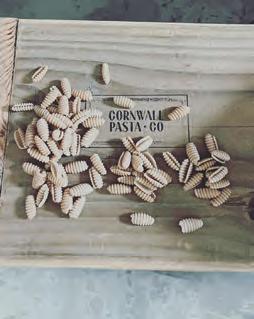
editorial@gff.co.uk
Editor: Michael Lane
Deputy editor: Tanwen Dawn-Hiscox
Art director: Mark Windsor
Contributors: Nick Baines, Stewart Gilbert, Patrick McGuigan, Greg Pitcher
Cover photo: Stefanos Aktipis opportunities@gff.co.uk
Sales director: Sally Coley
Sales manager: Ruth Debnam
Sales executive: Becky Haskett
Accounts assistant: Julie Coates
Financial controller: Stephen Guppy

Finance director: Ashley Warden
support@gff.co.uk
Managing director: John Farrand
Special projects director: Tortie Farrand
Operations & marketing director: Christabel Cairns
Marketing & PR officer: Jenna Morice
I’m reminded of this episode regularly because there are always plenty of business expansions, major listings and corporate buy-outs going on. Yes, these things can all be viewed through a sceptical prism but increasingly I choose not to. If a company gets bigger or seeks different stockists, it can bring benefits to our market (as mentioned) and if it gets too “big” then it will inevitably move on –leaving a gap for a new challenger to take its spot.
I suppose my take on success is that it is a good thing for our sector, which thrives on being an everadapting ecosystem of suppliers and retailers. Nothing captures this vibe better than a trade show and the biggest one of the lot is coming up (see our show guide for Speciality & Fine Food Fair).
I’ll be there and I’m looking forward to hearing plenty of success stories. Maybe you’ll tell me yours too.
Do you ever have interruptive thoughts about food? Doing what I do for a job, it would be surprising if I didn’t. But recently, there’s been a recurring one about Cornwall Pasta Co.’s Organic Chestnut Gnocchi. Maybe it’s because I tried it before it hit the shelves and knowing I’d have to wait gave it extra appeal. Or maybe it’s because it is delicious to the point of addiction. I’ll let you be the judge. More on p. 58
Data strategy & insight manager: Lindsay Farrar

Engagement & sales support
assistant: Nick Rose
Operations manager: Claire Powell
Operations coordinators: Chris Farrand, Sepi Rowshanaei
Operations & events coordinator: Zara Williams
Customer services assistant: Chloë Warren-Wood
Chairman: Bob Farrand
The thing that has been troubling me is there are still times when success can be a bit of a dirty word in our market.
Fine food importers have slammed the impact of Brexit on business after reports surfaced of yet another delay to bringing in new border checks.
A source described as a Government insider told the Financial Times that a new regime of health certification for certain animal and plant imports from the EU would no longer come into force in October.
Instead, the start of the long-awaited Border Target Operating Model will not take place until 2024.
A draft version of the model, put out to consultation earlier this year, said the £1bn changes would replace “cumbersome and frustrating” existing import checks with a “more targeted, risk-based system underpinned by evidence and data”.
But industry figures said the proposals had only
created further headaches for food importers.
Nick Carlucci, sales director at Italian produce specialist Tenuta Marmorelle, described a further delay in implementing the new system as “inevitable”.
“The fact is that not everyone was ready,” he said. “We had some suppliers that were really struggling. There are some that do very small amounts of business in the UK so were willing to leave this market completely.”
Even for those firms still willing to send goods here, the proposed model will be damaging, Carlucci warned. “The costs will be passed onto the final customer and could hurt sales.”
Fran Pombal, buying manager at Spanish food specialists Brindisa, said he had been working with suppliers for months to ready them for the incoming rules.
“No-one likes
Derbyshire’s Reunion Delicatessen is up for sale. Located in Belper, the café and specialist food store was opened by couple Jo Black and Matthew Bubis in 2022. It is on the market for £140,000.
uncertainty ,” he said. “I would rather the system didn’t come in at all but if it has to happen then it has to happen now.
The Border Target Operating Model was supposed to come into force in October but has been delayed Government confirmed the latest delay, it would be “the clearest admission thus far that Brexit is making our lives more expensive”.
“Suppliers will stop listening to us soon.”
Pombal called for the UK Government to find a way of recognising EU certification. He added that small producers “look at us differently at trade shows” since Brexit.
Kamil Shah, co-founder of Greek importer Olive Branch, said that if the
Industry bodies have breathed a sigh of relief after ministers pushed back the trigger date for new charges to packaging waste recovery.
The Government announced that its much-heralded Extended Producer Responsibility (EPR) scheme would not come into full effect until October 2025 at the earliest.
This represents a major climbdown on a policy that was initially expected to make packaging waste producers pay for its management from this year.
Depending on various criteria, retailers,
importers and suppliers could all fall under the legislation and become liable for data collection and various charges.

The Food and Drink Federation hailed the “brave” decision to delay implementation of the scheme.
“We support the Government’s delay because it is recognition that planning for EPR simply isn’t advanced enough for anyone to be confident that the system will work,” it said in a statement.
“In announcing a delay, the Government has rightly recognised that what’s important here is getting our new EPR scheme right.”
Andrew Goodacre, chief
executive of the British Independent Retailers Association, added: “It is good news that EPR has been delayed and hopefully the time will be used to design a simpler and less onerous system, while still reducing packaging wastage.”
Environment minister Rebecca Pow said the Government was “determined” to eliminate all avoidable waste by 2050.
But she added: “We are also listening to industry and ensuring our work to tackle inflation and to drive up recycling go hand in hand, to make sure our reforms will be a success.”
A Government spokesperson said: “The Government remains committed to delivering the best border in the world.
“We are reflecting on the valuable feedback provided by a range of businesses and industry stakeholders and will publish the Border Target Operating Model shortly.”
Halen Môn is the 29th Welsh business to have been awarded B Corp status. The Anglesey sea salt company spent 10 months working through the accreditation scheme’s process.
Food historian and writer Seren Charrington-Hollins has opened a deli in Welshpool. The author of Revolting Recipes From History and A Dark History of Tea said Charrington’s Delicatessen will showcase producers from Powys and Shropshire.
Waitrose and John Lewis’ offer of free coffee for police officers to prevent crime and shoplifting in its stores has stirred up a conversation about the police’s role in retail security.
Speaking on LBC Radio, ACS spokesperson Chris Noice said that incentivising police presence was an effective deterrent, and pointed out that convenience stores have been doing this for a long time.“It gives the impression that the police car could be just around the corner, whether or not they’re responding to an incident.”
Critics responded to the news on X (formerly Twitter), questioning the
practice, comparing it to “mafia tactics” and bribery. One said that “if Waitrose wants securing in house, it should hire private security firms”. The moves comes amid a spate of shoplifting affecting retail outlets across the UK. Supermarkets are resorting to various measures to deal with the incidents, introducing bag checks, receipt scanning gates and dummy packaging.
Anecdotal accounts of shoplifting in independent retail align with national figures, as reports in England and Wales rose by 25% between 2022 and 2023, up from 21% the previous year.
A 14th consecutive rise in interest rates has piled fresh pressure on fine food retailers, with warnings sounded over a number of direct implications for the embattled sector.
The Bank of England raised its base rate to 5.25% in August, the highest level since the financial crisis of 2008.

Designed to curtail consumer spending and reduce inflation, the policy represents an obvious threat to retail takings.
Rob Copley, director at Farmer Copleys, said the Yorkshire farm shop had witnessed people “cutting back” on regular spending.
Noting that independent retailers were often seen as the top rung of the grocery ladder, he said the sector lost customers to cheaper options without receiving new business from above.
However, a bigger problem for many retailers
is the spiralling cost of servicing their own debt, Copley warned.
“Every business out there has interest-related payments to make. It is another business expense alongside energy and staffing costs, and VAT coming back after Covid. My turnover is up but my profit is down 40 % this year.”
Andrew Goodacre, chief executive at the British Independent Retailers Association, said low demand was proving “hard to deal with”.
Independent retailers with large premises could face strict new labelling rules after a key watchdog urged ministers to overhaul unit pricing laws.
The Competitions and Market Authority (CMA) called for shops to be forced to offer more comparable information to consumers.
The legislation already requires labelling of certain goods in terms of their cost per specific measurement, but a CMA probe found “compliance concerns” as well as identifying grey areas that led to inconsistent display of information.
The watchdog called on ministers to
ensure only one unit measurement could be used for each product type. It also said the new legislation should specify exactly how unit pricing should be displayed.
CMA chief executive Sarah Cardell said: “We’ve found that not all retailers are displaying prices as clearly as they should.
“The law itself needs to be tightened.”
While some independents welcomed the call for clear guidelines on unit pricing, others said it would be unnecessary work for a sector that relies on other factors than price to create a positive experience for customers.
rising cost of debt could impact shops not just now but long into the future.

Meanwhile interest rate hikes were adding to “increasingly high overheads” to run a small business, he added.
“Low demand, higher costs mean real pressure on the cash flow of a business, and most small business fail due to lack of cash rather than lack of profit,” Goodacre warned.
James Walton, chief economist at retail analysts IGD, said weakened shopper demand was “perhaps the most obvious and immediate concern”.


But he added that the
“The whole UK food supply chain needs investment to help deliver the service that shoppers need, including secure supply, increased sustainability and better nutrition,” he explained. “High base rates may discourage further investment, especially given that business margins are also under pressure.”
Stefano Cuomo, chief executive of Kent food hall Macknade, said customers were “making choices” on where to spend their limited budgets. Independents have to offer quality produce and a positive experience to survive, he urged.
“One of our assets is community space,” he said. “To go somewhere with people you recognise, who say hello to you, where the vibe’s great, it will make the rest of your weekend feel great.”
The Academy of Cheese is making a final call for entries for the Young Cheesemonger of the Year competition before the September 15th cut-off.

The competition was created to promote knowledge about cheese and open up career opportunities for young cheese professionals. As in previous years, four entrants will be shortlisted and invited to take part in the final round of the competition at the World Cheese Awards, which will take place in Trondheim, Norway, on 27th October 2023. The winner will receive a trophy and a place on the Academy of Cheese Level 2 training course.
For more information on how to enter, visit academyofcheese.org.
“Most businesses who own properties have loans or mortgages on them; it is one more cost that’s going up. And our demographic of customers is being hit by their own mortgages going up. But spend on experience eating has held up relatively well. Basket spend is down but footfall is up. Businesses like ours have built trust.”
“I have a tracker mortgage on the business and my payments have gone up 14 months in a row. We see lower weekly spends at the moment; people are cutting back. But they treat themselves. They think: ‘We can’t afford a summer holiday but let’s have an afternoon at Farmer Copleys.”
“We have two personal mortgages on our stores, one of which is variable-rate, and we have taken a big hit. Our prices have already gone up as costs rise. Customers are spending less in the café but more on ingredients to cook at home; they feel they deserve the treat.”
Representatives of the British retail sector have called for Government action to alleviate pressure on businesses after recent inflation figures showed that price rises are starting to level off.
Despite cautious optimism at the news that average price rises eased off to 6.8% in July, down from 7.9% in June, leading figures have predicted that tough months lie ahead.
James Lowman, chief executive at the Association of Convenience Stores said retailers have been handling multiple price increases from their suppliers, as well as rising operating costs. “Prices are still going up so retailers are faced with tough decisions on how to protect consumers from the full impact, while also staying viable in difficult trading conditions.”
Britain’s supply of fresh fruit and vegetables could be at threat after a threeday heatwave in Morocco saw temperatures peak at 53°C. Substantial damage to tomatoes, pepper and cucumber crops were caused by the intensity of temperatures, according to commodity price expert Mintec.
As a quarter of all UK fruit and vegetable supplies came from the Mediterranean in 2022, the implications of this heatwave are “far-reaching”, the organisation stated.
This is the second time salad supplies to the UK have been compromised this year after unseasonable weather in Spain and Morocco led to shortages in the Spring.
imposed by government actions, especially as we know that the current high inflation levels are due to costs increasing, not consumer demand,” he said.
A spokesperson for an established retailer told FFD that rocketing inflation over the past 18 months had placed “significant strains” on internal resources and cost controls.
Waitrose is set to introduce new alcoholfree drinks aisles in its stores as it anticipates higher demand at Christmas. The products will be given 60% more space, replacing a number of alcoholic products.
Official figures published in August showed inflation has slowed to 6.8%, down from the 11.1% peak in October 2022
As the main lever to control inflation is to raise interest rates, he said, “the government should be balancing this with targeted support for retailers, especially for those who signed energy bills last year and are trapped in sky-high contracts.”
Andrew Goodacre, chief executive of the British Independent Retailers’
Association, said core inflation – which excludes food and energy – was proving stubborn, and with interest rates still expected to rise the Government should extend the freeze on business rates – at 75%, capped at £110,000 per business, up from 50%– past the April 2024 deadline.
“We cannot withstand further increases in costs

The latest from farm shops across the country


Grassington Farm
He said: “That peak period absorbed a huge amount of energy and work which had an effect on other elements of the business”, making it challenging to keep prices down.
He noted that the mood has since shifted slightly:“This dynamic generates stability so people can have more constructive relationships with their partners. It also means more attention can go into delivering a better proposition to consumers.”
Jeremy Clarkson’s farm shop fell prey to shoplifting last month. Clarkson posted footage of the theft in his Oxfordshire store, showing the perpetrator stealing items worth around £80 in total, including a 50cl bottle of ‘Gin in a Tin’.
Grimsby glass supplier Pattesons has signed a deal to produce bottles for Brewdog Distilling Co., designed especially for Brewdog’s new range of spirits, which includes Lonewolf Gin, Abstrakt Vodka and Duo Rum.
Over the past 40 years, Brocksbushes Farm Shop near Corbridge has evolved to become a thriving shop, tearoom and PYO farm. It is giving itself a refresh, building a new site which will include a butchery, a café and a dedicated play barn. It is expected to be ready in Spring/Summer 2024, and the current farm shop and tearoom with operate as normal until then.
brocksbushes.co.uk
Shop near Skipton has introduced a fabulous new salad bar for the summer with a “build your own salad” offer - including beetroot & apple salad and asparagus, broad bean, fine bean and spinach salad. It also offers antipasti boxes filled with mountain gorgonzola, Cornish brie, Napoli salami, Yorkshire butter, and more.
Despite its name, The Littlest Farm Shop, run by the owner of Mrs Bourne’s Cheshire Cheese, has space for more than just cheese, stocking produce from local suppliers –including bread and milk, eggs, bacon, freshly picked salad, fruit and veg.
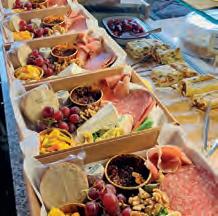
Fordmore Farm Shop on Honiton Road just outside Cullompton has just opened an adjoining fish shop to complement its in-house butcher, deli and cheese counter, café and animal petting area. Open Tuesday to Saturday, it offers a range of fresh fish as well as some frozen options. fordmorefarmshop. co.uk
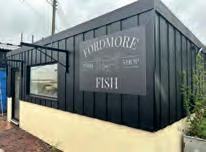

32 years in the industry, 27 years at Speciality.
First in fine: fine cheese, fine charcuterie, fine crackers, fine condiments, fine chocolates...

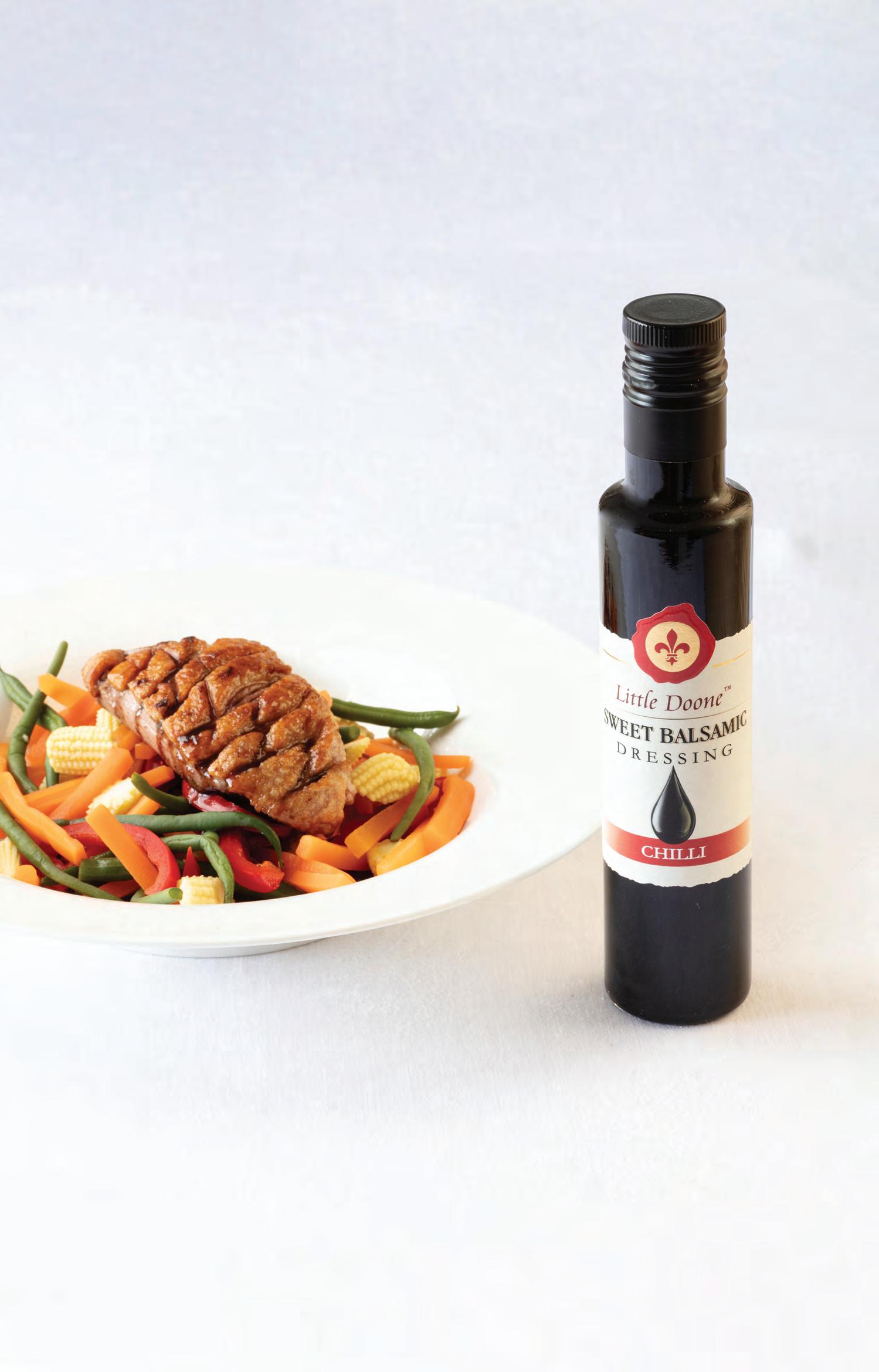
My parents had a shop when I was younger. I saw the colossal amount of hours they put in and swore I’d never own one myself. But, after university, I worked in the family business for a while. With that experience, I started a role for the convenience store brand Spar as a sales manager. I told myself it’d be a stop-gap, but a few years quickly became a 15-year career resulting in managing a big team. Honestly, I had started to lose my enthusiasm for the job at this point. My wife Claire and I both quit our jobs around the same time to travel. When we returned, I saw a deli in Wimborne that needed some casual Christmas staff.
The nature of the products rekindled my curiosity for retail and I really leaned into the role. Then, just before lockdown, the owner told me she was shutting the place down as the lease had come to an end. Claire and I saw this as an opportunity and opened it as The East Street Deli in June 2020. Of course, that was right in the middle of lockdown. But there were some advantages that came with this.
Because we couldn’t have anyone in the shop due to social distancing, we brought the counter up to the door, which allowed us to look full despite having very little stock. You’ve all heard the stories of loyalty that was built during the pandemic. It was the same for us. Getting to know our customers, and what kind of cheese they like, allowed us to build relationships.
When we originally opened, I think I had visions of having a couple of shops after three years, but in reality, I think there’s so much more we can do to grow where we are, like wholesale, events and expanding the current shop, before we expand into other locations.
We never expected to sell so much alcohol. We initially introduced a small range of beers and wine which has grown and equates to a very healthy amount of our sales. A lot of what looks good in the deli is thanks to my wife Claire. She spends hours researching, finding exciting products and generally making it look and feel inviting.
Even with all my experience of retail, I think the hardest part of running the deli is the hours. There’s still so much to do when you close the doors at the end of the day. As the business grows, we feel the biggest challenge is going to be getting the right staff. Until then, we’re just continuing to create the kind of place we want to shop in ourselves.

I’M DETERMINED NOT to whinge this month. I’m insisting on a positive frame of mind having just returned to work after a few days in Cornwall (UK holiday this summer, folks). I’ve caught some rays; my hair is sun-kissed blonde and I’m feeling chipper after catching a few mackerel.
Speciality and Fine Food Fair (S&FFF) is on the horizon and we’re announcing our Great Taste Golden Forks on the 11th of September at the Battersea Arts Centre, helping another clutch of food and drink businesses celebrate their quality - and shining a light on them to stimulate sales. Adding to that, we are entering Q4 very soon and that
always saves the day.
It’s all upbeat, isn’t it? Optimism central, eh?
So, I’ve grabbed my mackerel, filleted them and had them for my lunch whilst typing this missive. Pair them with home-grown leaves and you have a sustainable, inexpensive, nutritious, and delicious “meal deal”. It’s in speech marks because it shouldn’t be a thing. But news today is that it really is, and it’s now in Waitrose.
The supermarket known for being the “smart one” has succumbed to this sandwich, snack and can of something, office-worker staple. And they are doing it for a fiver.
My mood shifts. Will it be sustainable, nutritious, and delicious at that price? We’ve hit a low point when Waitrose help the affluent during the cost-of-living crisis with the lowly lunchtime bargain, inevitably compromising on the cost or quality of ingredients, or putting pressure on their suppliers. It’s the stuff of Greggs or Tesco, not from the cultured aisles.
No whingeing, Farrand. There’s always something to be optimistic about.
We’ve already started to pull together our Best Brands review of the year, informing the sector what is selling and trending in independent retail. If you sell quality food and drink, I urge you to complete the survey.
Announcing the big prizes
in Great Taste is positive. I truly enjoy that night, talking to invested people who make excellent food & drink. But it’s not just about the Golden Forks. It’s about all makers with stars and the trade coming together, learning, communicating, tasting, and doing some business.
Continuing the upward trend, we’re off to Olympia on the 11-12th September. There’s a theme of innovation at this year’s show, with a Start-Up village for the youngest and newest makers and a guide for those new to B-Corp. There’s the S&FFF Awards with a category for new-to-market products, and there’s a panel discussion for those new to Great Taste.
There’s the fillip we all need. Come and see us on stand 3171, where there will be no whingeing allowed. Don’t come and see us with a “meal-deal” in your mouth, and we’ll discuss how to collectively succeed in the remainder of 2023. Best Brands survey: bit.ly/BestBrands2023
Get your team ready for Christmas with the Guild of Fine Food’s practical hands-on Retail Cheese Training course. Suitable for all levels of experience, this course will help new staff get to grips with their role and inspire more experienced staff to engage more with customers and refresh their skills.

Presented by cheese experts
Patrick McGuigan & Emma Young, courses will take place in Dorset on 26th September, and London on 10th October. To find out more and book, visit gff.co.uk/training
PARLIAMENT IS CLOSED and many MPs are on holiday, but the party-political headquarters have decided not to take a break. Instead of a quiet reprieve, they are using the summer to test their electoral messaging ahead of the general election, which many expect in late 2024. The foundation of these core messages links back to Sunak’s ‘five priorities’ and Starmer’s ‘five missions’, but it is interesting to see how these messages are developing
The Conservatives have been focusing on three areas; energy security, small boats and the health service. But they are also trying to distinguish themselves from Labour by presenting solutions to complex energy security problems about the need to act faster on the climate

emergency, for example by issuing new licences for drilling in the North Sea. Perhaps this a response to their win in the Uxbridge by-election where opposition to the unpopular ULEZ proposals helped them hold onto the seat.

Meanwhile, Labour must walk the tightrope of an opposition party and credible government in waiting without giving policy specifics that would divide voters or their party. Labour have focused their messaging on smashing the ‘class ceiling’ and ‘sticking plaster politics’ enabling them to criticise the Conservatives’ record in government and poor economic management. The polling suggests Labour remains well ahead, but you can almost sense the tension of defending a lead as opposed to going out to win the arguments.
All parties will have to do more to address the issue of
crime impacting communities and food retailers. We have already seen indications from the Home Office that there will be new legislation in the upcoming King’s Speech that will pitch the government as tough on crime. Labour too has their ‘Make Britain’s Streets Safe’ mission that needs to be expanded on.
It seems to me that we will be talking much more about crime and justice issues for the rest of this year and into 2024.
If you want to see our policy recommendations on retail crime, check out ACS’ 2023 Crime Report that has policy solutions from developing ‘Most Wanted’ lists for repeat shop thieves to helping businesses invest in crime prevention measures.
edward.woodall@acs.org.ukFFD’s publisher and Guild of Fine Food managing director John Farrand has his say
We’ve hit a low point when Waitrose help the affluent during the cost-of-living crisis with the lowly lunchtime bargain
ANONYMOUS TALES FROM BEHIND THE COUNTER
HAVE YOU NOTICED supermarkets are doing promotions again? I guess that means with inflation potentially coming down there is fat on the pig again. I’m not by any means suggesting that the cost of living crisis is any less critical than last month, but it means normal service is beginning to resume.
When you get listed with a supermarket, you sign up to pay for those discounts. I assume that means the big retailers are pocketing the cash rather than passing it on. I really wish I had the time to be so clever. But there is no doubt that if I match prices to the customer mood, I get more sales. It’s true in retail and it’s true everywhere.
My local publican changes his menu during the week. When I asked why, thinking about all the extra stuff he’d have to order, he told me about the “Supper, Dinner and Anniversary” plan – over a pint, of course.
Supper, he said, is when the punter makes a snap decision and
JOHNNY
decides to go out rather than cook: very affordable, school night, easy eating, probably only one glass. That’s Monday to Thursday.
Dinner is more planned, more courses, more booze, maybe some invited friends. That’s Thursday to Sunday. For anniversary meals people really trade up: budgets broken, maybe only two to three times a year. His pubs do special meals for days like Valentine’s.
He makes lots of money from his dinners and his anniversaries but, here’s the clincher, he says it’s the suppers that keep the lights on. Without that first-half-of-week trade
he couldn’t cover his overheads, keep regular, quality staff, keep his pubs’ names on customers’ tongues. I guess (having watched a fair bit of Women’s World Cup recently) it’s like having a good defence. He’s thinking he can only attack the weekend for profit, if he’s not starting two goals down mid-week.
Do I do something similar? I stock up for Christmas and Valentine’s etc, so I guess I’m doing his “anniversary” menu. But otherwise I think most of my shop is “dinner”.
What I worry about is not attracting – and perhaps alienating – the “supper” crowd. I see it in other deli and farm shops too. Not the good ones, but quite a few of us seem to focus on budget-challenging “dinner” as the only option. Treats so expensive you want to keep them to yourself.
Maybe that should be our homework this week. Go round our shops asking ourselves what people are buying Monday to Wednesday. If you are a producer – what bread-andbutter options are in your catalogue?
I bet those are our best products that actually sell all week and are paying our bills keeping the customers coming in whatever their mood. If it looks a bit slim think about building up your affordable supper-options a bit. We need to put as much effort into an affordable sales defence as promotional sales attack
56%
When Indie Füde started, we didn’t set out with a plan to open multiple sites, but there were a few factors at play when it came to opening our second shop on Ormeau Road in South Belfast in 2020.
Firstly, it was a good opportunity to take a unit in an up-and-coming area where there were already lots of other independent shops –some of whom we knew and we’d worked with before.
It also came about at the right time. Lockdown was good for us, as we were deemed “essential retail” and we built up a lot of business and reputation via our first shop in Comber (to the east of Belfast), as well as online.
Going into the city, albeit not in the centre, would allow us to reinforce our brand and make sure that we were closer to customers that may have already shopped with us via other channels.
Plus, in terms of distance, the second shop is far enough from our first store and also equi-
distant from home – for both me and co-owner Laura Bradley – so it’s easy to shift goods between the sites and to get to if there is ever an emergency.
We’ve had offers of sites further away, on the northern coast of Northern Ireland for instance, but we turned them down because neither of us want to spend an hour in the car just to deliver a crate of milk.
In terms of looking at other sites, the inspiration comes from farmers’ markets (which I do under the Indie Füde banner), so I know where there’s appetite for what we might do in a bricks-and-mortar format rather than just eyeing up potential footfall.
Not everything works and if I’ve learned anything from a third Belfast location we tried and have now moved on from, it’s that partnerships are bloody hard. This was more of a production unit and possibly a bit too far from the retail core of Indie Füde.
The main thing is that we are always living within our means – reinvesting profits rather than borrowing money to expand. We’re always trying to build up that pot, so maybe another store could be in the offing soon.
I certainly wouldn’t have done anything 6-8 months ago, but now that rents and electricity bills are coming down and there’s a more positive attitude out there, there’s certainly potential for another site.
Source: Office for National Statistics, Public opinions and social trends, Great Britain: 26th July-6th August 2023
Whether it’s staff training, business advice, event space, making industry connections or opportunities to meet trade buyers and food lovers, the Guild of Fine Food does far more than publish FFD. The Guild has been championing independent food & drink for over 30 years, join us today and find out what we can do for your business.
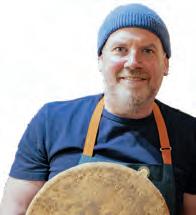
Support & ideas: support@gff.co.uk
Training & venue hire: bookings@gff.co.uk
Exhibition stands: opportunities@gff.co.uk
MyGuild assistance: myguild@gff.co.uk
gff.co.uk/join
MCDOWELL, CO-OWNER OF INDIE FÜDE IN NORTHERN IRELAND, DISCUSSES HAVING A MULTI-SITE OPERATION
Supper is when the punter makes a snap decision
The percentage of adults who reported that their cost of living increased between July and August 2023, down from 67% in May
4 1% of respondents said their cost had stayed the same during the same period, and 2% said it had decreased.
This is proper food: made with skill and care, by people who love what they do, in a beautiful place. Real food, real drink, real Wales.
Would you like to experience Welsh products in Wales? Why not attend our upcoming BlasCymru/TasteWales trade event, offering an unrivalled opportunity to learn more about the nation’s food and drink. Learn more at tastewales.com


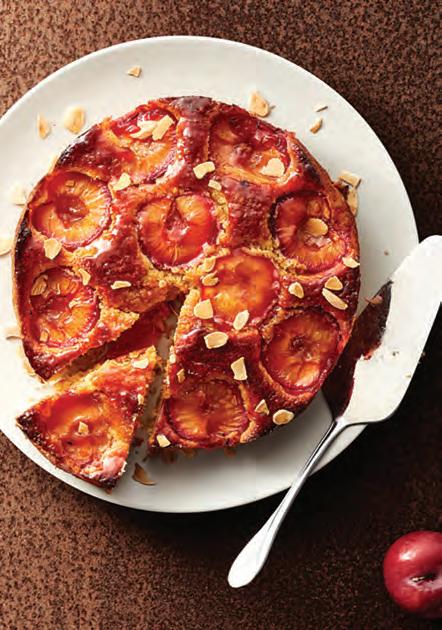




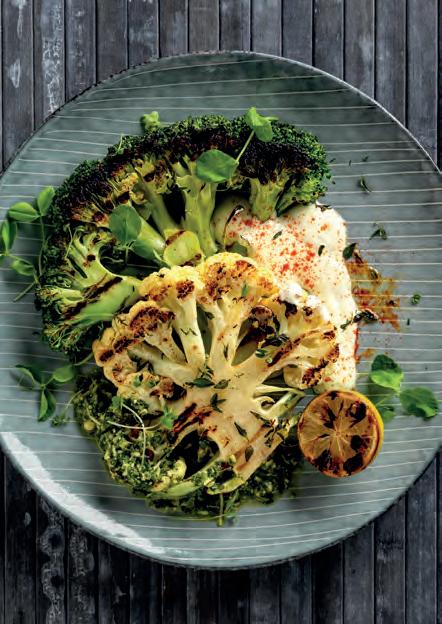

Do you work with some exceptional cheesemakers? Make sure they have entered their cheeses this year.

Don’t miss the opportunity to exhibit at the world’s most important cheese awardsand gathering of global experts.
Explore Norwegian cheese at Oste-VM cheese festival and watch the 2023 World Cheese World Champion judging live.
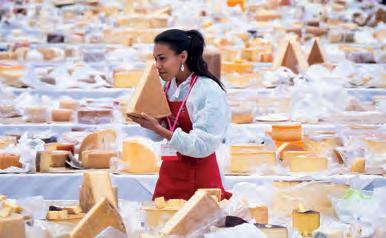
ENTER NOW gff.co.uk/wca
Find out more about exhibiting at the World Cheese Market

CONTACT opportunities@gff.co.uk
KEY DATES 2023
Entry opens: 5 June
Entry closes: 8 September
Judging: 27 October
Oste-VM: 27-28 October


Results available: 29 October

BOOK NOW ostelandet.no/oste-vm-2023
ORGANISED BY PRINCIPAL GLOBAL PARTNERS


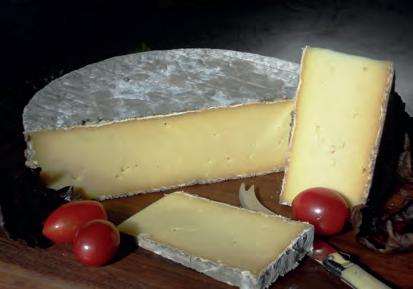

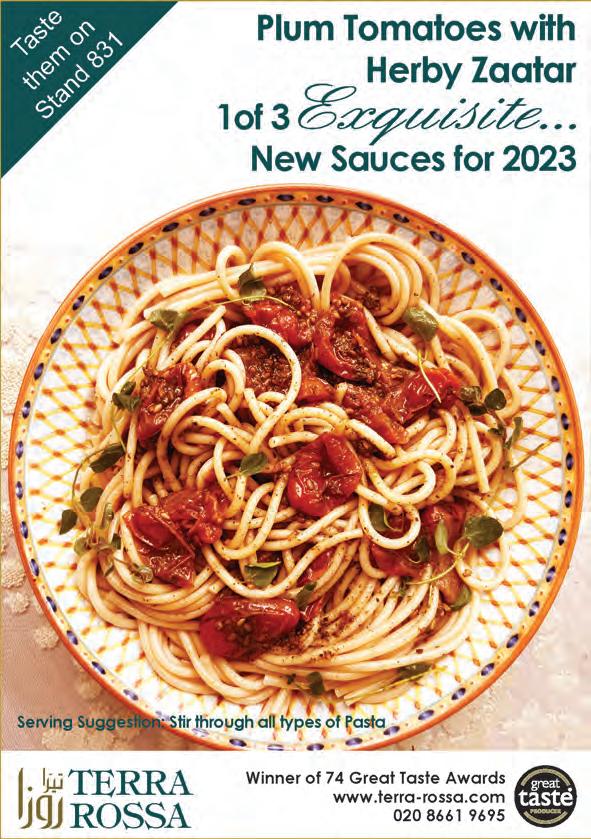

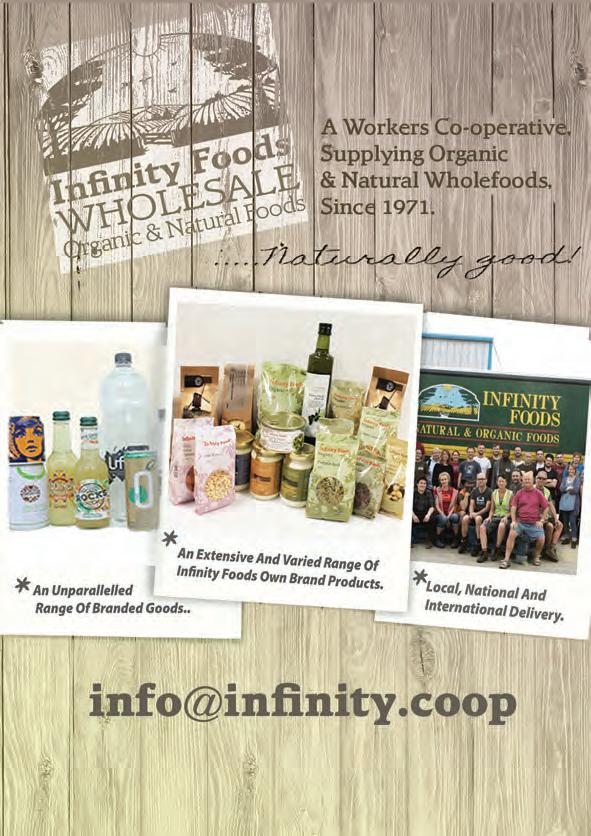


Hundreds of small dairy farms have been forced to close this year because of falling milk prices, leading to concerns that artisan cheesemakers could struggle to find suppliers in the future.
According to the Agriculture & Horticulture Development Board, 350 dairy farms closed between October and April, representing a 4.5% fall compared to a year earlier. There are now just 7,500 milk producers in the UK, compared to more than 9,300 five years ago.
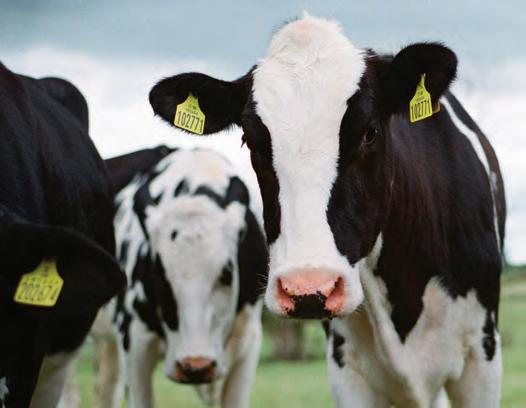
Recent closures are being blamed on a steep fall in milk
prices from 50p/litre last year to a current price of around 37p, while farmers continue to battle high energy, feed, fertiliser and labour costs.
While falling milk prices might be good for cheesemakers on paper, it is small dairy farms that have been hit hardest by the volatility and are deciding to sell up – a trend that is particularly worrying for artisan cheesemakers, who rely on good quality milk.
“It’s not good news for artisan cheese,” said Jonny Crickmore, owner of Suffolk dairy farm and cheese business Fen Farm Dairy. “Once farms leave dairy farming they don’t
come back, which means less milk for artisan cheesemakers. Last summer’s drought put pressure on feed prices and forage. Milk prices are dropping like a stone, while feed and fertiliser prices have doubled in the past year. The numbers just don’t stack up.”
He added that attractive subsidies for wildlife and environmental schemes were also tempting farms away from dairy, while a lack of labour and rising wages are making life difficult for farmers.
While many farms are selling their herds, others are turning to cheese to add value to their milk, indicating there could also be positive outcomes from the crisis.
At Nutfield Dairy near Redhill in Surrey, which has a 25-strong herd of Dairy Shorthorns, co-owner Matt Elphick has recently moved from liquid milk to making a Tomme-style cheese called Surrey Red, in an effort to counter rises in energy costs.
“I used to do relief milking around here and five or six of the farms I worked for have closed recently,” he said. “Cheese is a way to add value, which I think more farmers will be looking at, but the investment costs are considerable and that may put them off.”
This new goat’s cheese from White Lake in Somerset has an unusual texture that sits between a young Caerphilly and Halloumi. Made in 3.2kg wheels and sold in vacuum-packed halves, quarters and 200g wedges, the rindless semi hard cheese is pliable, easily breaking into curdy pieces. The flavour is sweet and floral with lactic, milky notes.
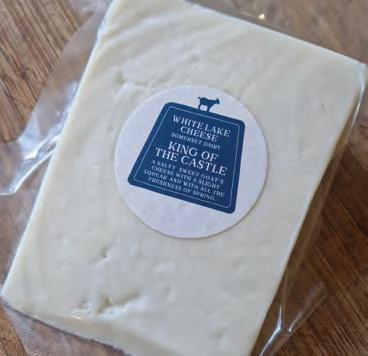
Cherries

The British cherry season now extends into September thanks to warmer temperatures and new growing techniques. The sweet, tart and almost floral flavour of fresh cherries combines with the lactic notes in the cheese to create a cherry yoghurt experience. White Lake also recommends a drizzle of honey and some shelled pistachios.
Chilli jam
The Big Cheese Weekender festival, organised by the Academy of Cheese, returns from 13th-15th October with a new focus on live events, as well as online talks and tastings. bigcheeseweekender.com
King Charles visited Lincolnshire Poacher Cheese in July and was given a tour of the dairy and farm by brothers and owners Simon and Tim Jones. The King is Patron of the Specialist Cheesemakers’ Association and is a vocal advocate for organic and sustainable agriculture.
Anthony Heard, the owner of Kupros Dairy, died suddenly last month. The Londonbased operation makes ewes’ milk products – including the Halloumi-style Anglum –inspired by its founder’s Cypriot roots.
Oxfordshire-based Nettlebed Creamery and Waitrose have developed a new cheese washed in English sparkling wine. Waitrose No.1 Leckford Wash Cheese is washed in Leckford Sparkling Brut, which is made with grapes from the retailer’s own vineyard on the Leckford Estate in Hampshire. The soft cow’s milk cheese is listed in 281 Waitrose stores.

The mild, sweetness of King of the Castle makes it a great base for stronger flavours. A dollop of marmalade or a sprinkle of fresh thyme leaves are lovely with the cheese, but even better is a spoonful of chilli jam. The fruity heat of Scotch Bonnet Chilli Jam from the Sauce Shop, made in collaboration with 1251 restaurant owner James Cochran, is particularly good. Sweet, super spicy and almost smoky in flavour, it adds a real kick and lovely dash of crimson colour to the pale cheese.
Perry
British craft cider is having a moment with a growing band of small producers developing beverages that have much in common with wine in terms of variety, complexity and terroir. The same is also true of perry, cider’s pear-based cousin, which is being made in a wide variety of styles. Sparkling versions with delicate fruit and floral notes are a top pick for King of the Castle. Oliver’s Fine Perry Wild Ferment Rolling Blend is made for the job.
Britain’s oldest cheesemaker Fowlers of Earlswood, which can trace its history back to 1670, has closed down, but its flagship Sage Derby cheese will continue to be made by Hartington Creamery.
Fourteenth-generation cheesemaker Adrian Fowler stopped production last month and is in the process of selling his equipment and premises in Warwickshire. It spells the end for cheeses such as Warwickshire Clothbound and Soft Bard, but Sage Derby will live on, after being sold to Derbyshire-based Stiltonmaker Hartington Creamery.
“I’m really pleased that Fowlers Sage Derby will continue,” said Fowler. “It’s going home to Derbyshire, where it was first made in the 1600s.” Fowler told FFD that the dairy, first constructed by his great, great grandfather, required £500k investment, which would take 20 years to pay off.
“I’m approaching 60 and my
CHEESE IN
Payoyo Cheese is made in the village of Villaluenga del Rosario, Cadiz, with milk from Payoyo goats and Merina grazalemeña ewes – both native breeds of the Sierra de Cádiz in Andalusia,
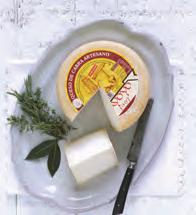
daughters have seen the blood, sweat and tears that have gone into the place, so there was no question of them taking it on,” he said, adding that attempts to sell the business as a going concern had been unsuccessful.
Last year’s increases in milk and energy prices had also played their part in the decision, while the cost-of-living crisis was starting to affect sales at the 270 local delis and farm shops he supplies. Fowler will continue to work as a consultant, helping Hartington
Spain. The Payoyo goats are a rare and prized breed whose milk has contributed to this cheese’s internationally celebrated and awardwinning status. The goats graze on the hillsides of the Sierra de Grazalema in Andalucia. This is the first mountain range in from the Atlantic and the steep pastures experience exceptionally high levels of rainfall, resulting in an abundance of herbs, wild grasses and flowers, which is reflected in the milk. The cheese was first made in 1997 and in 2013 it was named Spain’s Best Cheese by the Ministry of Agriculture. The accolades continued and in 2018, it was awarded a Great Taste 3-star. It continues to be made at the Payoyo Factory, which remains a centrepiece to the local economy.
develop Sage Derby, and offering technical advice to other cheesemakers.

Fowlers Sage Derby, which accounted for 50% of the company’s sales, is a hard cheese that has a layer of dried sage running through the middle and on the rind. The cheese originated in Derbyshire and was historically made for festive occasions. Sage also has antimicrobial properties, which stopped the cheeses from cracking and ‘blowing’ during maturation.
Rather than avoiding uncomfortable questions about the environmental impact of cheese, Dan Willis has embraced the issue at Chorlton Cheesemongers. He undertakes a sustainability audit each year to look at how the shop can improve and has introduced significant changes.

“Firstly we’ve reduced packaging,” he says. “We work as a hub for Neal’s Yard Dairy, so a lot of our cheeses arrive unwrapped in reusable crates. Then, it’s about reusing and recycling as much as possible.”
Biodegradable pots and bags have been introduced, while arts and allotment groups take packaging for projects and growing seeds. Replacing cling film for cut cheeses is a challenge. “We’ve tried biodegradable options, but they are expensive and don’t protect the cheese so well.”
Local deliveries are made by a zerocarbon bike delivery company and electricity is bought through Ecotricity, which guarantees 100% renewable sources. The next project is harnessing heat from refrigeration to heat water.
chorltoncheesemongers.co.uk
and crumblier, and the flavours take on almond notes.
Variations: None
Cheesemonger tip: This is a great gateway cheese for customers who usually shy away from goats’ cheeses. An ideal cheeseboard cheese – serve with fresh figs or grapes.
Milk
85% goats’ and 15% ewes’ milk. Can be pasteurised and unpasteurised. Animal rennet.
Appearance & texture: Similar in make, style and appearance to a Manchego – with its crosshatch rind – this cheese is perhaps more
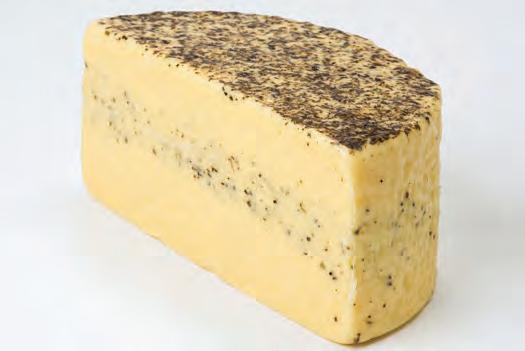
buttery than that cheese. It has a rich, nutty flavour with honey and vanilla notes and a slightly acidic finish. As it ages, the paste becomes drier
Chef’s recommendation: We recommend pairing it with a dry Fino Sherry. The creaminess of the cheese contrasts superbly with the sherry’s slight acidity and fruity, citrusy flavours.
There are a number of ways you can study Academy of Cheese courses: online as selfstudy eLearning, interactive virtual classes or traditional classes at a venue. Visit academyofcheese.org for more information.

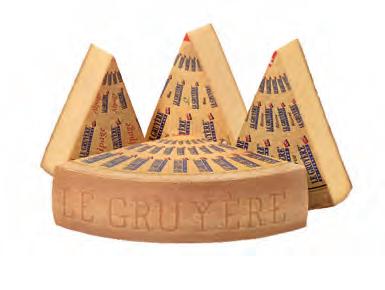




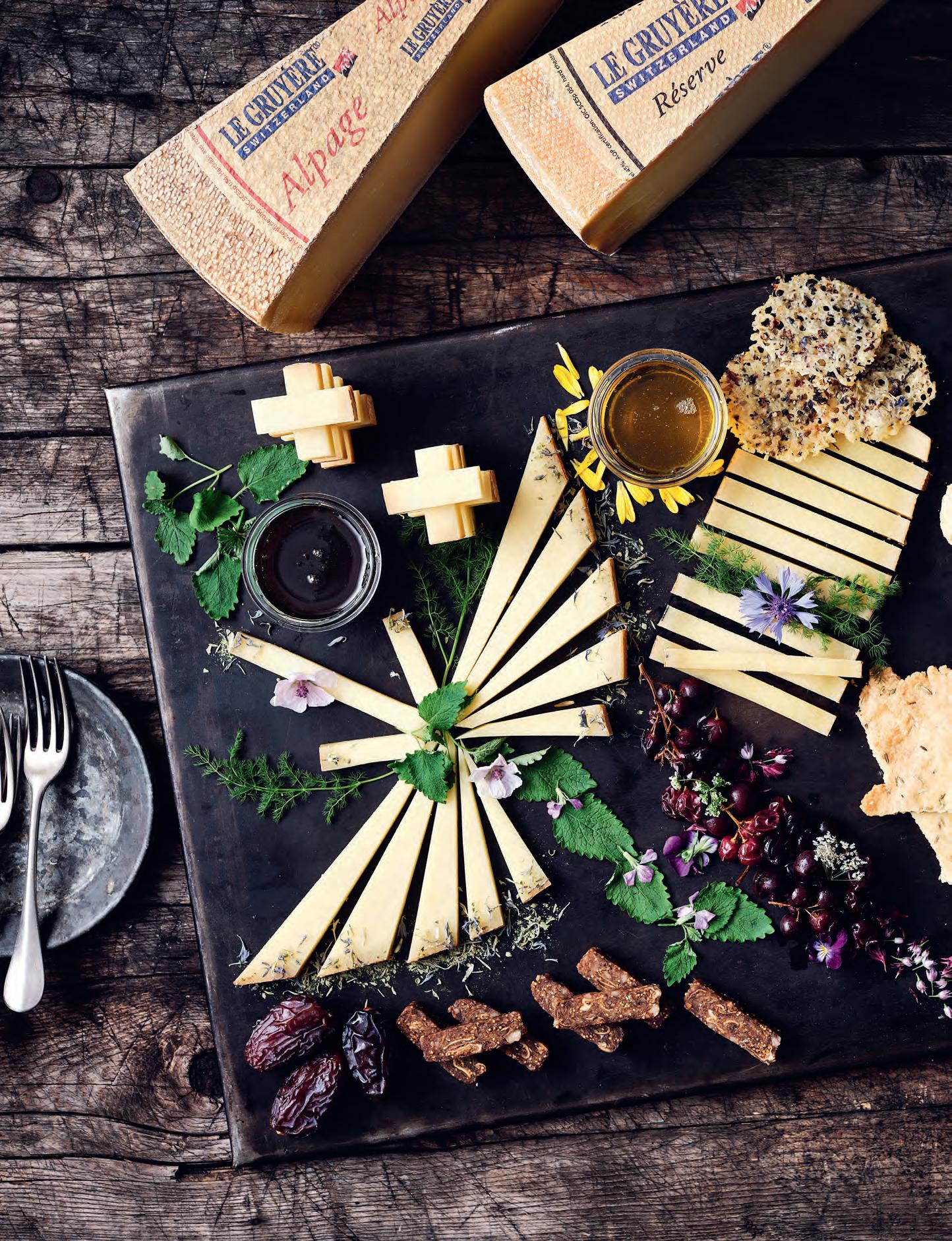
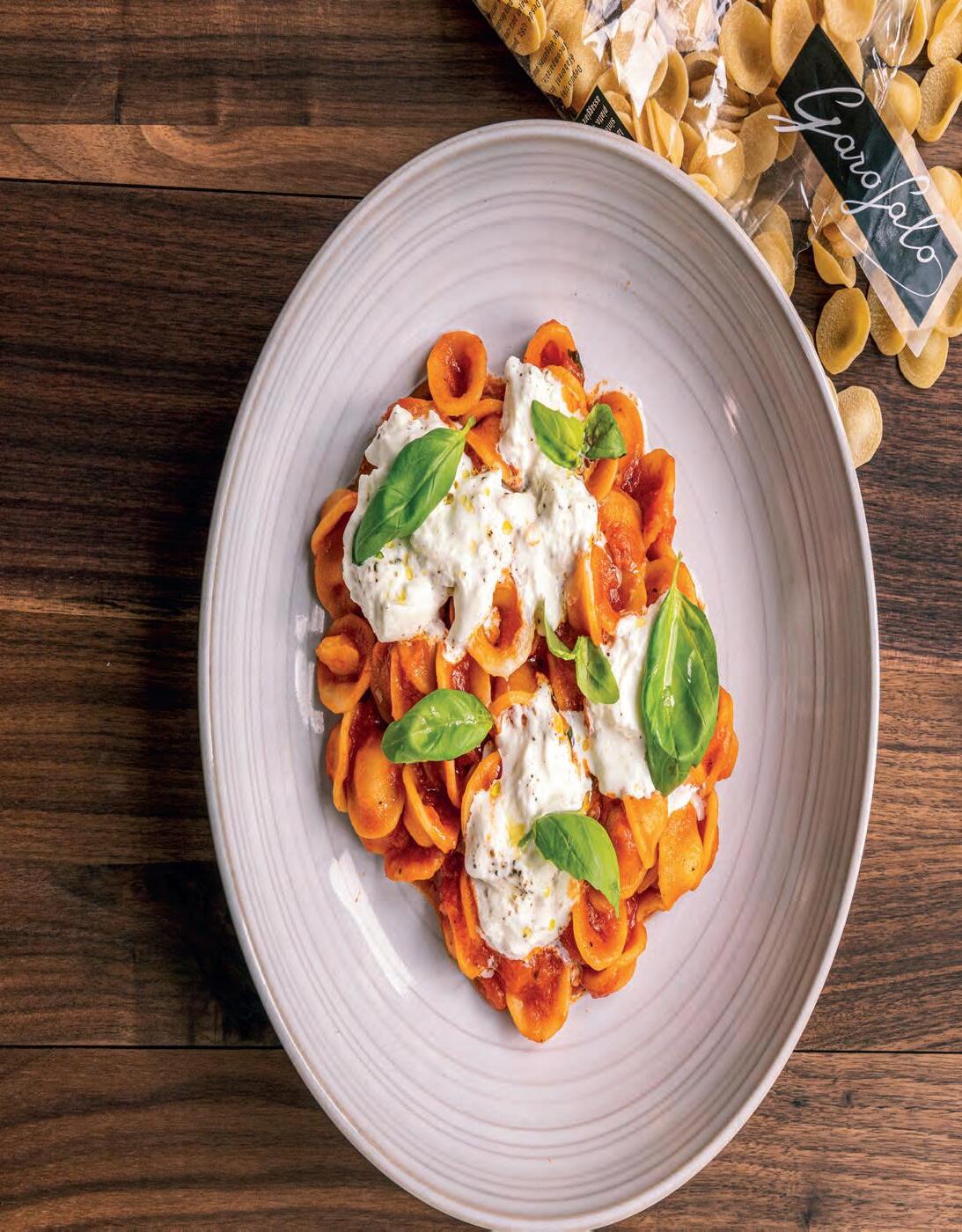





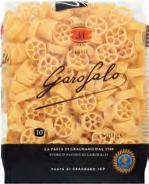


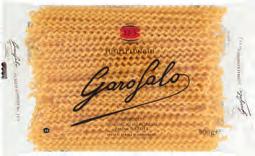
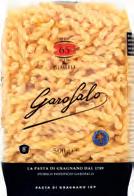



LIKE ATHLETES LIMBERING UP before the Olympics, the best cheesemongers on the planet are in the final stages of their preparation for France’s prestigious Concours Mondial du Meilleur Fromager (World’s Best Cheesemonger Competition).
Cheese books are being pored over, knives sharpened and chutney pairings perfected ahead of the contest, which takes place on 11th September in Tours, France. This is the sixth time the biennial event has been held, with cheesemongers travelling from as far afield as South Korea, Mexico and Brazil to be put through their paces. The 2021 champion was Virginie Dubois-Dhorne from France, but professionals from Holland, Belgium and Japan have all triumphed in previous years.
The UK will be represented at the contest by Nick Bayne, cheese specialist and head cheesemonger at the Fine Cheese Co. in Bath. The only slightly confusing thing about this is that Bayne is not actually British.
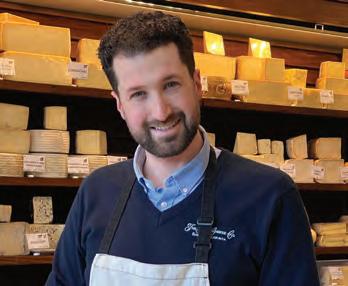
“Yeah, I’m very much an American,” he says. “I was born in America. I grew up in America. I became a cheesemonger in America. But I settled in the UK in 2018 and now call it home after buying a house here. It’s an honour to represent British cheese internationally.”
Bayne’s love of British cheese started in his youth, when he trained to be an actor in the UK and spent many happy lunchtimes perusing the counter at Neal’s Yard Dairy in Borough Market. “I’d never seen food treated in that way
before. It’s when I really fell in love with British cheese.”
This will be the third time he has competed at the Concours Mondial du Meilleur Fromager. He came tenth in 2019 and fourth in 2021, and is hoping to go even better this time, having got to grips with the intricacies of the competition. But it’s not going to be easy.

Even being selected is a challenge. Candidates must initially submit two essays, plus a photograph of a 10-cheese board with detailed notes. Bayne has gone through the process each time he has entered, despite being a former champion of the Cheese Monger Invitational in the US, where he worked for Bedford Cheese Shop and Dean & Deluca.
These requirements are trivial compared to the competition itself, which involves round after round of cheesemonger challenges. These start with written tests, blind tastings and cutting tasks, followed by a presentation to judges on a special cheese (see box-out). Then it’s on to the live stage where contestants create a three-cheese platter, cheese dishes and a grand cheeseboard measuring 1m-square. They are even asked to carve a sculpture from cheese.
“You have limited time for each task and you are constantly being watched by the judges on wastage and cleaning down,” he says. “They want to see what your personality is like under pressure. Are you calm or losing your focus?”
This is the last year Bayne plans to enter and he’s keen to help another cheesemonger enter in two years’ time – not only because it brings great prestige and promotes UK cheese, but also because it has improved him as a cheesemonger.
“Seeing how the French and Japanese create their cheese displays is interesting,” he says. “They cut on the diagonal rather than vertical, and flavour cheeses with nuts and flowers.
“It’s made me more creative and efficient, and honed my wire and knife skills. Taking part is a beautiful way to show what this island has to offer, but also to take influence from the rest of the world and bring it back here.”
mondialdufromage.com/concours-fromager
Bayne has picked St James to present to the judges at the Concours Mondial du Meilleur Fromager as part of a round where he must advocate for a particularly special cheese.
“It’s an example of what I think is the way forward and future of British cheese,” he says. “Small scale, raw milk, innovative and with a real sense of place.”
Made by Martin Gott and Nicola Robinson, this is a soft, washed rind cheese. It is made between spring and autumn, using raw milk from the couple’s flock of Lacaune sheep, plus animal rennet and home-made starter cultures, prepared by fermenting raw milk.
St James changes a great deal reflecting differences in the milk and the season. It can be springy, pudgy or gooey, while the flavours range from sweet and milky to meaty and peanutty. It captures the terroir and flavour of the place and day it is made.

They want to see what your personality is like under pressure.




As the industry prepares for Speciality & Fine Food Fair’s 24th edition, FFD takes you behind the scenes at some of the new launches and inspiring speakers visitors will find at Olympia in September. You’ll also find a full A-Z listing of exhibitors, starting on p. 26


It’s almost time for another fantastic edition of Speciality & Fine Food Fair. The team have spent the past year meeting with exciting artisan food & drink brands across the UK and around the world and securing inspiring industry speakers for this year’s event, and it’s almost time to see it all come to life.

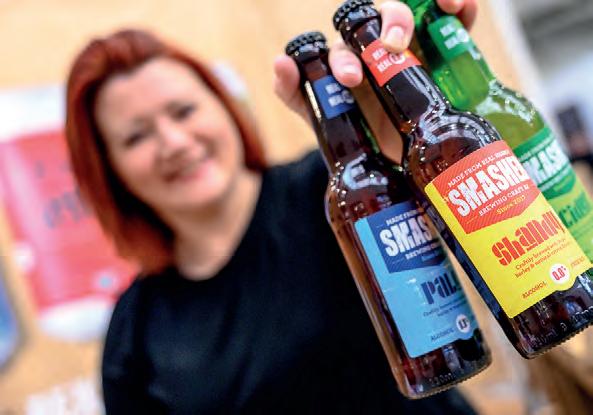

In an industry that’s still grappling with so many external challenges, it’s truly exhilarating to witness the resilience and innovation of companies launching at our Fair. Each year I’m so inspired by the entrepreneurship on display; there are so many trailblazers showcasing their unique culinary creations and redefining the future of food.
As a proud judge of the prestigious Great Taste Awards, I am thrilled to see lots of winners attending the Fair. The Great Taste seal is a hallmark of quality, and having these brands in our midst adds an extra layer of excitement and anticipation for visitors.
Speciality & Fine Food Fair has become a hub of exploration, connection, and celebration in the world of fine food & drink. It’s your opportunity to savour artisan flavours, and a platform for fostering the growth of remarkable enterprises. The Fair is also an unrivalled opportunity to network, collaborate and build longlasting, mutually beneficial partnerships.
Let’s come together, share our passion for this wonderful sector, and enjoy the diverse and delicious food & drink on offer at Speciality & Fine Food Fair 2023.
Your journey of discovery begins here.
Nicola Woods, Event Manager, SFFF
The Start-Up Village is a bustling hub at the heart of the Fair packed with dozens of up-and-coming food & drink businesses. Visitors will have the opportunity to meet with brand owners as they launch innovative products, pushing the boundaries of taste and pioneering sustainability.
From artisanal chocolates to craft spirits and niche superfoods, the Start-Up Village also cultivates an atmosphere of collaboration, allowing like-minded entrepreneurs to connect, learn, and grow.
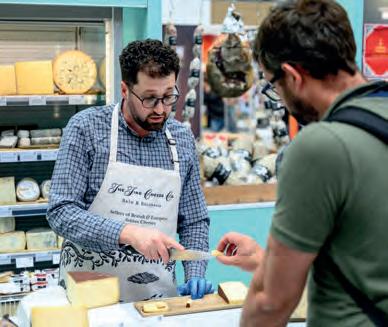
This year’s event will showcase the likes of CHO26, a producer of jelly cocktails made from natural ingredients.
The negroni, old-fashioned, roasted apple sangria, passion fruit martini and wild berry & peanut butter jellies are vegan, gluten-free and non-GMO.
The section will also feature LIQUEURIOUS, a small-batch tea and coffee liqueur brand, whose mission is to share the excitement, adventure and theatrics a little tipple can convey.
For buyers looking to spice up their product range, Chilli No 5 will be on hand to sample their award-winning gourmet chilli sauces, with 20 international flavours made with fresh fruits and vegetables presented in sustainable packaging.
Spanish brand Arna Falco will be at the Fair showcasing its plant-based milk chocolate-coated almonds, handmade in Valencia using tiger nut and sunflower seed milk.
Visitors can also meet Food of Gods, a mission-driven brand de-commoditising the spice industry by bringing flavour, freshness and nutrition back to spices.
The company has built direct relationships with small regenerative farms across Madagascar, Sri Lanka, India & Ghana to bring freshly harvested heirloom spices that are 100% pesticide residue free.
It’s not just the Start-Up Village which will be brimming with new products at this year’s event, the Fair is awash with exciting new product launches from brands of all sizes.
Visitors will have the chance to sample FHIRST Living Soda – an all-natural, zero sugar, living soda that combines the benefits of both probiotic cultures and prebiotic plant fibre.
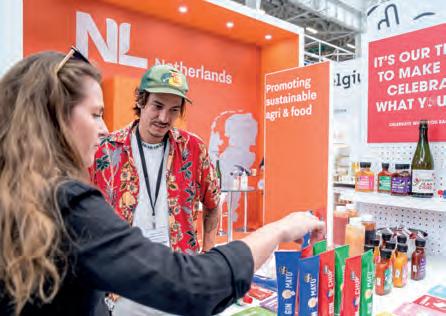
Fourneo will be launching at the Fair with a new bakery solution for retail and foodservice. The business has developed a cutting-edge new process for the folding and stretching of sourdough across 72 hours, and produces delicious pinsa, focaccia and ciabatta.
Established in 2023 by Caroline Harrison and Catharine Russell, the colourful Modern Art Distillery’s new line of premium craft distilled gin, rum and vodka are complemented by the work of contemporary artists on their labels.
Visitors can taste spirits including Blueberry & Bergamot Flavoured Gin, Strawberry & Honey Flavoured Spiced Rum and Watermelon & Thyme Flavoured Vodka washed down with a dose of abstract, watercolour or acrylic art.
Industry experts from consultancy FDReviews will also be on hand at the Fair with bespoke advice on new product development, marketing, packaging innovations, QSR, retail concepts and more.

Each year Speciality & Fine Food Fair welcomes artisan food & drink producers from around the world to show off their latest lines and meet with potential buyers. This year, suppliers from over 30 countries will be taking part, including South Korea, Samoa, Italy, New Zealand and South Africa.

On the International Trade Centre pavilion, visitors can meet a range of suppliers from the Caribbean, Africa and Oceania including

Jamaican agro-processing business Tijule, Fire Mountain chocolate from Cameroon, Fijian ginger producer Eljap and noni juice supplier Wilex from Samoa.
Australian brand Diviners Distillery will be bringing its two flagship gins from down under: Apparition and Outlier. Hand-crafted in small batches, the spirits are cold vacuumdistilled using Australian botanicals, unlocking complex flavours traditional distillation methods can’t achieve.
Food Export USA Northeast will be presenting a range of products including hot sauces, barbecue sauces, bitesize pretzels and delicious snacks from the Spritzal Cookie Company, while Daesang Corporation, Korea’s leading general food company will showcase some of its brands including Jongga and O’Food.
Flanders producer The Nutty Farmer offers a range of Fairtrade cashew nuts grown on its farm in Belgium. Sold as a snack or a topping, they come in four flavours: Burning Buffalo (smoked herbs and hot spices), Happy Hippo (pomegranate and oriental spices), Crocodile Curry (rosemary and curry) and Giraffe Spiced Caramel (cinnamon and caramel).
The Trends Theatre will be the go-to place for visitors at the Fair to get up to date with the latest trends in food & drink and the speciality retail sector.


Research and industry insights are central to this year’s seminar programme. Waitrose & Partners Innovations Manager Lizzie Haywood will be offering five top tips for retail success.
Meanwhile, Charles Banks of thefoodpeople and Kelly Dowson of F!S Group will be presenting a deep dive into the 2023 Future Food Trends Tracker. Belle Lawrence, Associate Director at Immediate Future, Matthew Bond, Creative Director at Project D and Olivia Vachon, Marketing
Manager at Eataly London, will be taking to the stage to reveal their social media secrets and insights into how retailers and hospitality professionals can elevate their brand.
In a session called ‘Exploring the Power of Insights for NPD’, Food Industry Coach Amy Wilkinson will join Lucy Wager, Food Industry Consultant, Differential Insight Founder Mark Whalley and Mintel Associate Director Ayisha Koyenikan, to discuss how food & drink professionals can improve their NPD strategy.
Sarah Horsnell, Head of Buying at Appetite Me, will also be presenting a session on optimising the customer experience through visual identity alongside Iain Kimmins of Creative Download.
Also in the Trends Theatre, culinary consultant and chef Steve Walpole will welcome a host of industry experts to explore the latest trends, flavours and opportunities in global cuisine. He will also use a range of products from the Fair in a series of cooking demonstrations.

The Theatre will also play host to Pitch Live in partnership with The Great Brand Exchange, where visitors will have the opportunity to hear live pitches from innovative start-ups at the Fair.
An exciting addition to this year’s content programme is the Power Breakfast, in partnership with Flanders Investment & Trade. Retail and business expert Kate Hardcastle MBE will take to the stage to discuss the latest trends in food & drink retail and the state of the UK high street.
This exclusive event is open to senior industry leaders across retail, hospitality and foodservice and takes place before the Fair opens on Tuesday 12th September.

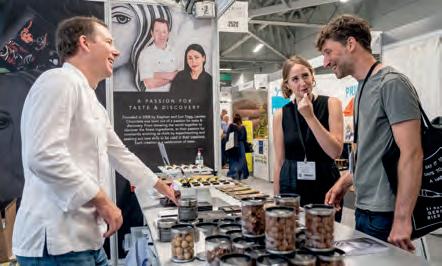

At the centre of the Drinks Cabinet, the heart of all things drinks at the Fair, the Inspiration Bar will host sessions with advice

and guidance from the Mixology School, for visitors looking to make the most of their drinks.
The team will discuss topics such as the low & no category, and popular drinks such as the Bloody Mary, the Daiquiri and the Spritz.
Zoe Cunliffe, Director at Mixology School commented: “We can’t wait to head back to Speciality & Fine Food Fair this September to provide key insights into the latest drinks trends, highlight some fantastic new products and pairings, and advise specialty retailers on how to upsell and elevate their drinks offerings.”
Visitors to the Drinks Cabinet will also be able to meet with the owners of brands like Bemuse, a company that has reimagined the world’s oldest brewed beverage – mead – to create a refreshing, non-alcoholic, sparkling, low-calorie drink.
Other businesses taking up residence in the Drinks Cabinet include colourful gin liqueur brand Reverand Hubert, quality RTD cocktail brand Whitebox Cocktails and organic tea company, Tea Bird Tea.
Squeezed will be launching its new RTD fresh orange and vodka cans, plus Jamaican rum punch brand Punch Daadie will be showcasing a new ‘Rum Punch in a Pouch’.
An exciting addition to Speciality & Fine Food Fair this year is the launch of the B Corp Guide, sponsored by Cotswold Fayre.
Sustainability is at the top of the agenda for many buyers and B Corp has emerged as one of the leading certifications for businesses demonstrating a high level of verified performance, accountability and transparency across their ESG efforts.
The process to achieve B Corp certification is rigorous, requiring engagement from teams, departments, partners and suppliers throughout a business, which is why these
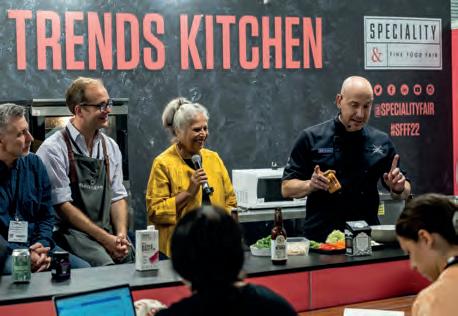
suppliers are being highlighted at this year’s event.
Cotswold Fayre has long led the way when it comes to sustainability in speciality food & drink wholesale and has been a source of inspiration for many in the sector.
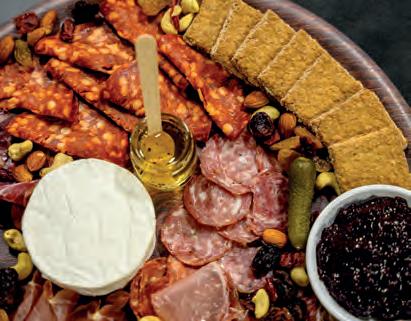
CEO Paul Hargreaves commented: “Cotswold Fayre was one of the first B Corps in the UK when the movement launched here in 2015. Since then, it has transformed the way we do business, helped our people understand our purpose and theirs, challenged the old ways of working and pushed us forward to be even better for the world year by year.
“Businesses that aren’t doing the same will be left behind and we are proud to now have nearly 60 suppliers that have also passed the rigorous B Corp certification standard. We are delighted to be sponsoring this guide as part of our efforts to help other businesses to be better for the world, and more successful.”
Among the producers set to be showcased in the guide is Tracklements, known for its range of handmade pickles, chutneys and more. Its star products include Strong Horseradish Cream, Sweet Mustard Ketchup and Fresh Chilli Jam. The business sources UK ingredients wherever possible, supports British farmers, generates its own electricity and reduces food waste by using wonky fruit and veg.
The guide will also feature English Tea Shop, a global business with sustainability at its core, using 100% organic ingredients and pre-dominantly sourcing from small-scale organic farmers in Sri Lanka.
Another proud B Corp, Golden Hooves, produces cheese made from regeneratively farmed milk. The business is on a mission to preserve land for future generations by reversing diversity loss and sequestering carbon, and is shortlised for Sustainability Pioneer of the Year at the Speciality & Fine Food Fair Awards.
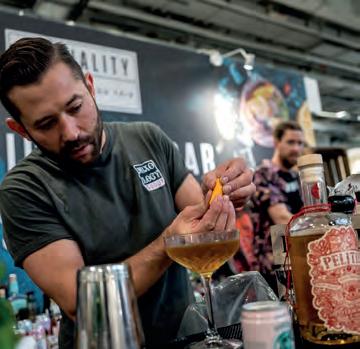



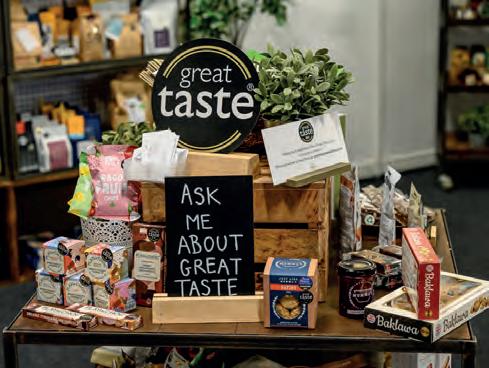






Stand 1231




The ready-to-drink Light English Spritz is the latest launch from Cambridgeshire’s Pinkster. The 4% ABV sparkling drink is made using gin-soaked raspberries leftover from making Pinkster’s core gin, combined with a blend of botanicals and Pinkster’s own-recipe zingy lime soda. Each 125ml serve is only 50 calories –nearly a third less than an average glass of wine. pinkstergin.com

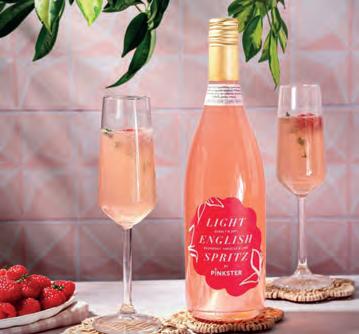


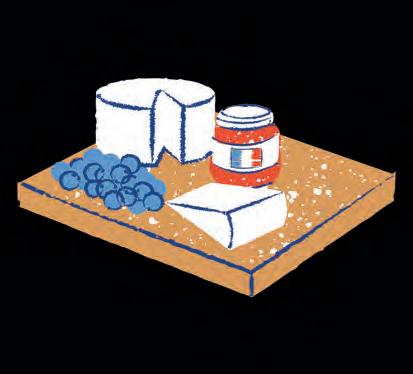











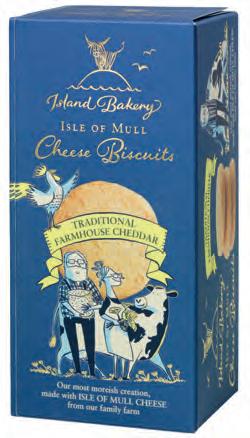




Wholesale coffee and equipment supply, with curated POS support
Award-winning, beautifully presented retail coffees

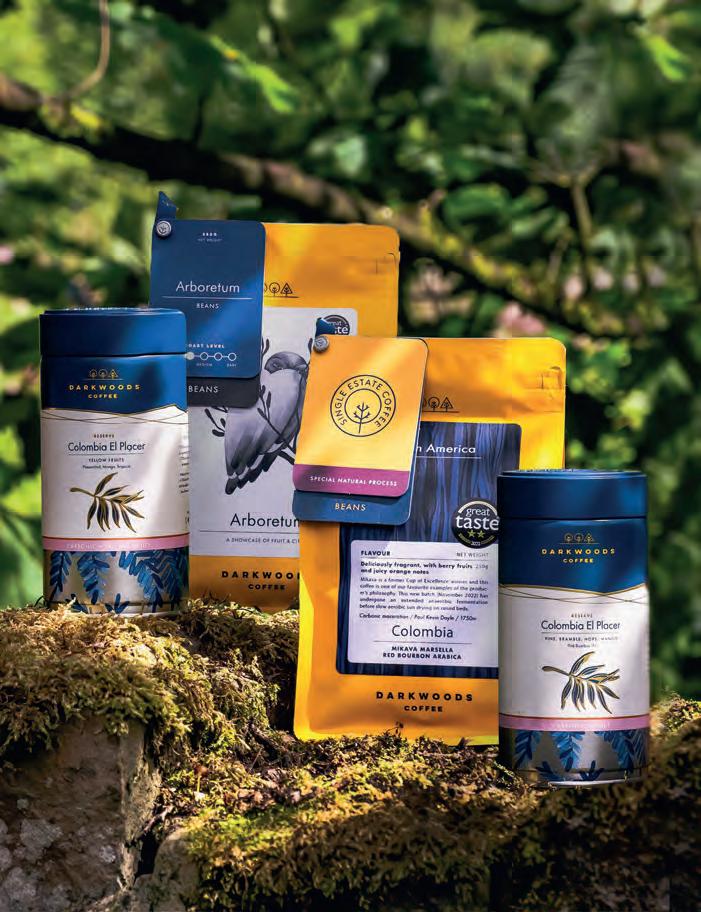

Barista training school and café consultancy
We’re a Certified B-Corp, and we give 2% of our turnover to community projects
Stand 2130
This winter, Snowdonia Cheese Company is set to launch its first range of cheese bakes in ramekins: Black Bomber® Welsh Rarebit Cheese Bake and Rock Star® Fondue Cheese Bake.
In addition, the producer has also unveiled a three-strong cracker range for pairing with its own cheeses: Wholemeal & Extra Virgin Olive Oil Crackers (120g), Spelt & Natural Yoghurt Crackers (100g), Fig & Cranberry Crackers (100g). snowdoniacheese.co.uk
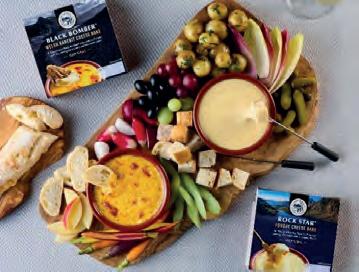




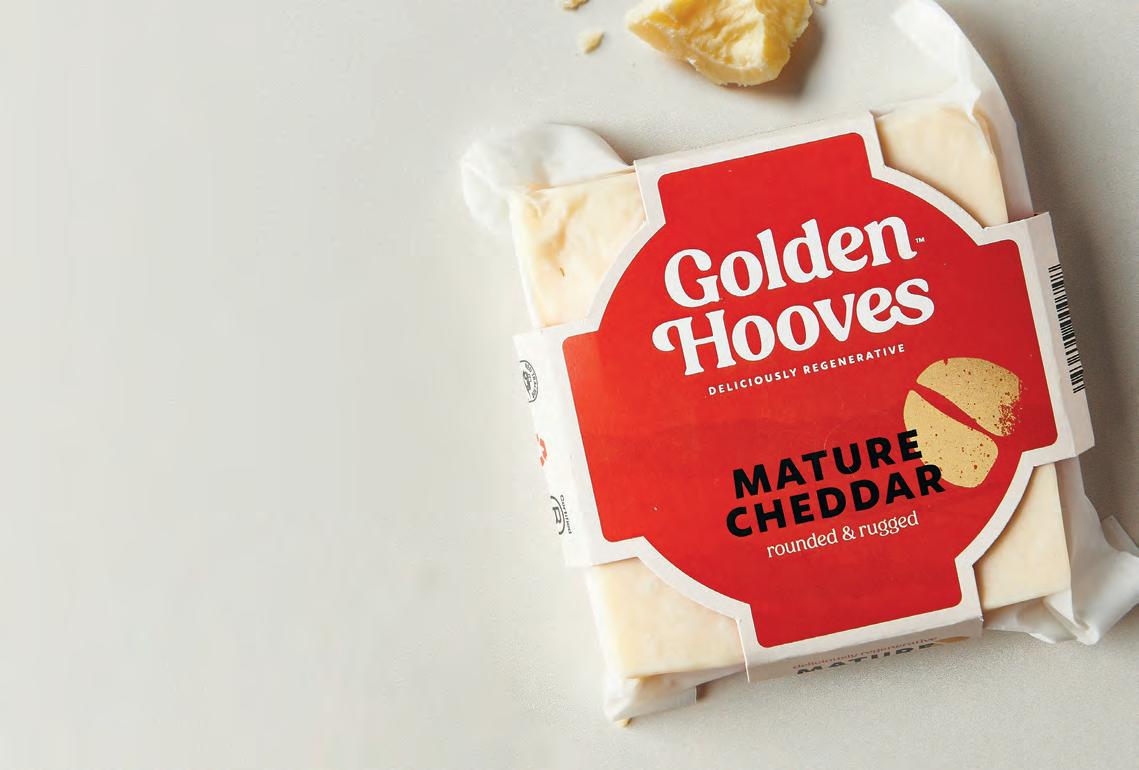
Stand 2724

New start-up Tios Drinks has a range of sparkling alcoholic teas. All of these premium low-calorie, low-sugar and vegan ready-todrink sparkling “hard teas” are made with brewed organic white tea, premium alcohol (4.4%ABV) and natural ingredients. The three different flavours are twists on three popular cocktails: White Tea Mojito, White Tea Margarita and White Tea Light & Stormy are tea-based twists of three popular cocktails. tiosdrinks.com

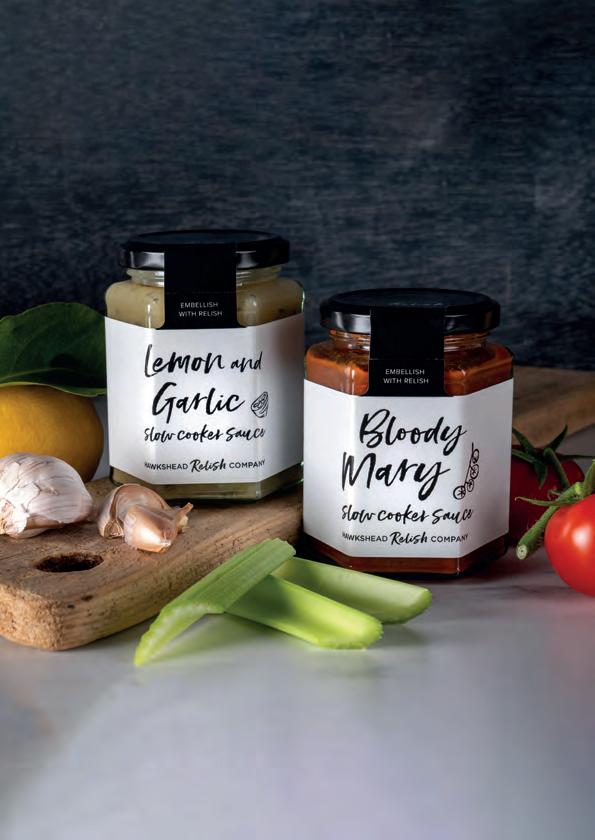




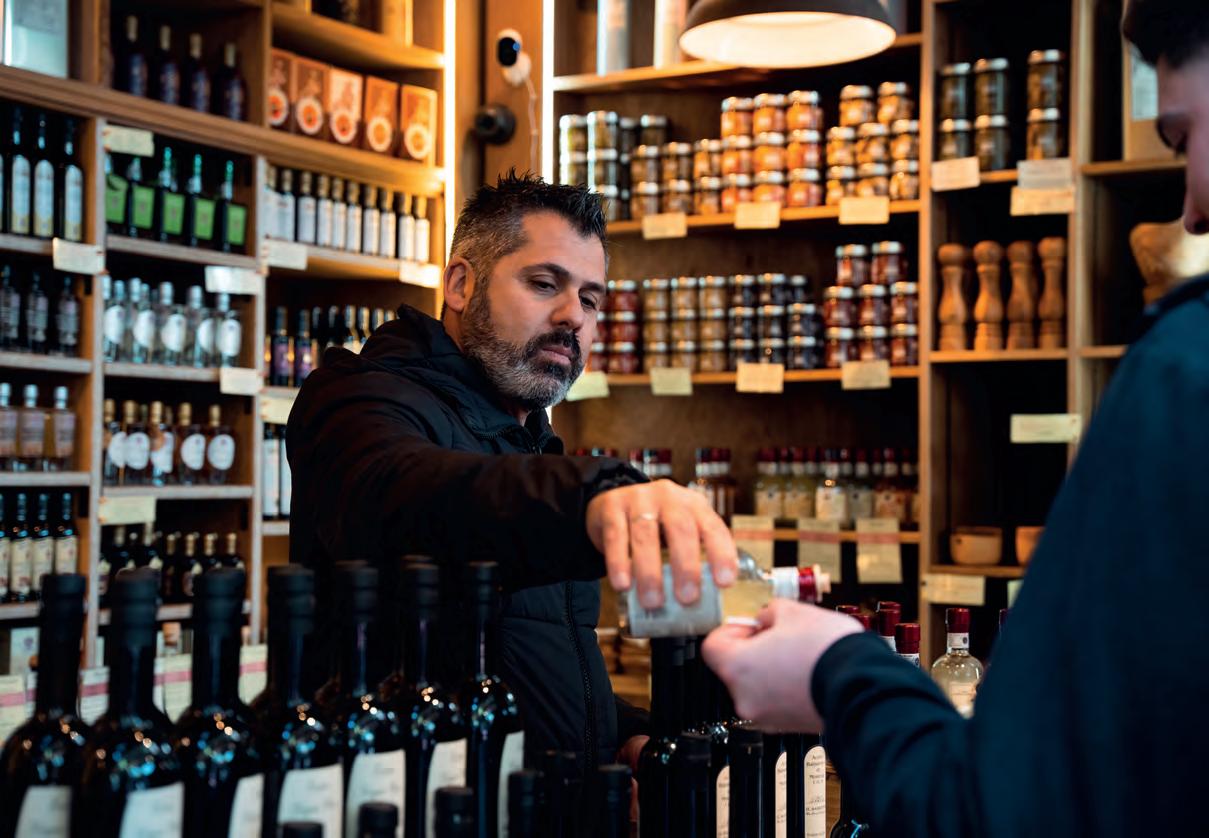







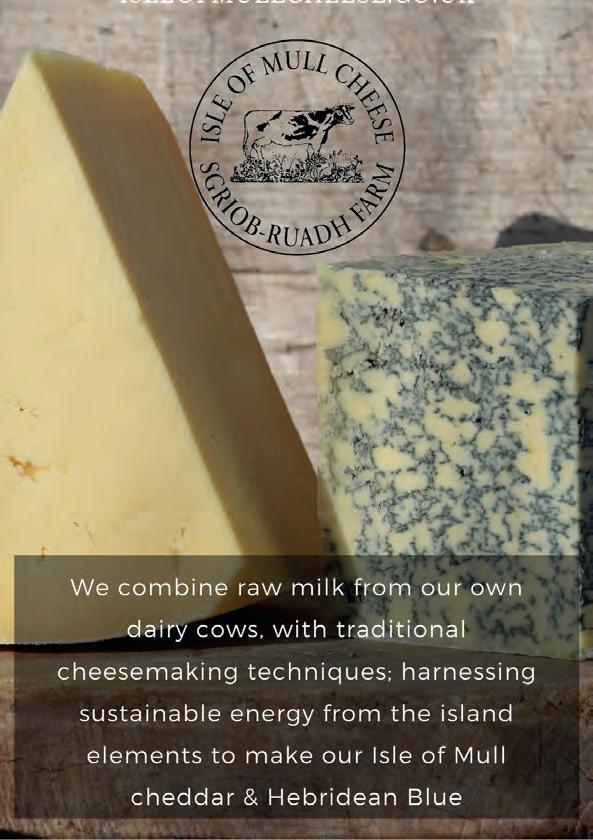



The ice cream brand will be launching several new lines at this year’s Fair. Its Plant-based Caramel Peanut Stickbars combine caramel ice cream, a smooth peanut sauce and a roasted peanut studded chocolatey shell. Meanwhile it has also developed Salted Caramel and Triple Chocolate Bars, both of which feature ice cream enrobed in Belgian chocolate. For younger consumers there are also Little Jude’s Fruit Twists ice lollies that recall a certain freezer classic. judes.com


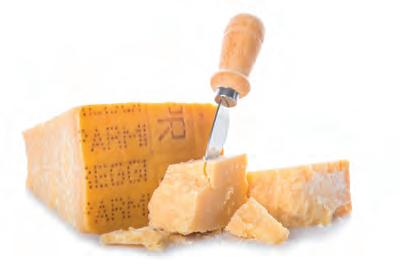


Stand 3129
DJM Food Solutions is a UK based, food sales and marketing business specialising in importing high quality products. These include a wide range of organic lines into UK and European retail and foodservice markets, as well as its own brand, St Lawrence Gold, which represents the widest range of Maple Syrups in the UK and a new Honeys of the World range. djmfoodsolutions.co.uk


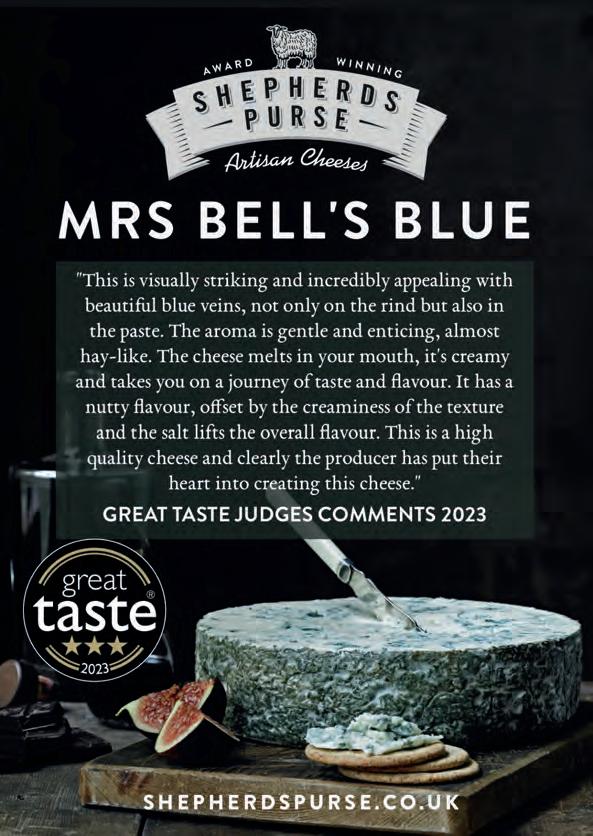
THE LAGRANDE FAMILY has been perfecting the art and science of rice production for almost 100 years.
As stewards of the land, Sun Valley Rice offers premium rice products grown within 100 miles of where the rice is sustainably milled, sprouted, germinated, and packaged in Northern California.
Through the power of vertical integration, the LaGrande family has the unique ability to uphold their heritage through innovative approaches.
Sun Valley Rice uses a Japanese milling process called Kapika which allows the rice grains to polish each other without water or brushes used in traditionally milled rice, eliminating the extra step of rinsing. This results in an end product with excellent taste and texture as well as increased water absorption, saving time during the cooking process.
Customers can choose from a comprehensive range of products including short grain, medium grain, sprouted, and even sake rice.
Calrose is favoured as sushi rice in the UK and abroad with its mid-level stickiness and soft, creamy kernel that absorbs flavour beautifully while retaining texture.
Premium Medium Grain has a slightly larger kernel and smoother flavour than the Calrose with the added benefit of retaining moisture for longer periods. Beyond their suitability for sushi, Sun Valley Rice’s short and medium-grain rice varieties stand out in every dish from paella and risottos through to soup and salads.
Vertical integration not only powers quality products, it supports environmental conservation and sustainable growing practices at scale. The company is committed to mitigating the negative impacts of farming through eco-friendly business practices, such as implementing water-holding requirements and using rice hulls as a renewable energy source to protect the water, air, and diverse ecosystems throughout the San Joaquin Valley.
Sun Valley Rice understands exceptional service is just as important as a great product. Its regional, full-service team based in Guildford provides sales, customer service, packaging, and logistics support globally.


“Our best-in-class team brings decades of experience and expertise to the industry,“ says Will Pike, senior vice president at Sun Valley Rice. “We are dedicated to delivering the highest quality rice solutions to our valued partners throughout the UK, Europe, and Africa, providing personalized guidance every step of the way.”
This has proven to be invaluable in a fluctuating market environment. California farmers are displaying incredible resilience after overcoming challenges from the drought that

resulted in one of the smallest crop sizes on record. The forthcoming 2024 crop is abundant and offers excellent opportunities for supply into the UK trade.
Sun Valley Rice’s products ensure that consumers all over the world have access to rice varieties cultivated to industry leading standards.
Sun Valley Rice is bringing more California flare with the launch of Planet Rice in the UK, offering a unique line of rice varieties that appeal to the growing trend of conscious consumers. Calrose White is the tried and true white rice option whose versatile, subtly sweet taste holds up to any flavor profile.

California Blonde is a universally loved, nutritionally-dense brown rice with white rice flavour that utilizes innovative technology to cut down cooking time by 30%. This unique whole grain boasts four times the GABA (gamma-aminobutyric acid) which helps to promote calmness, lowers anxiety, and improves cardiovascular function.

Powerblend combines Sprouted Brown rice with some of the healthiest ancient grains and wild rice to create an energizing superfood that’s loaded with protein and fiber. Planet Rice’s diverse range of premium rice products are designed to fuel the body and consumers’ best intentions.
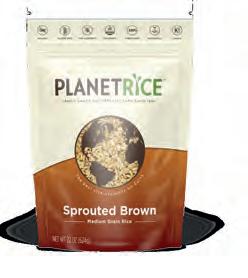
Through a sustainable approach in its native California, Sun Valley Rice delivers premium products that elevate any dishCalifornian Blonde Medium Grain Rice Sprouted Brown Medium Grain Rice



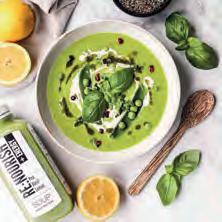




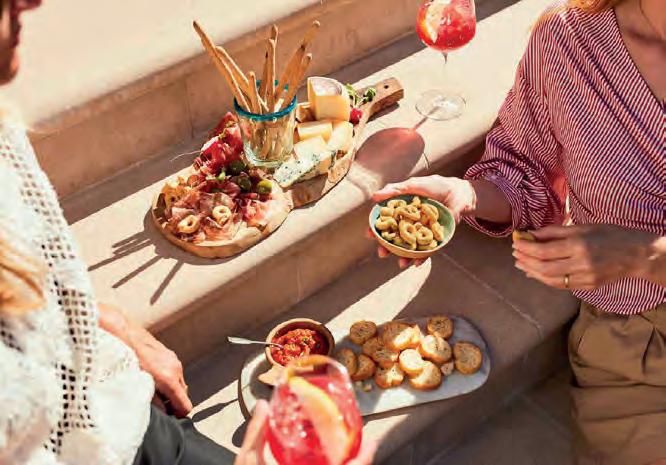


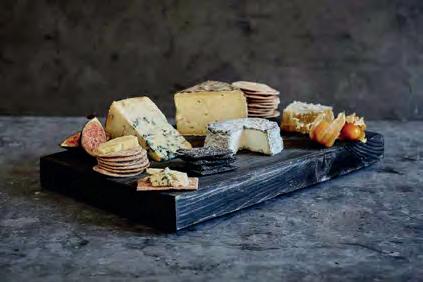
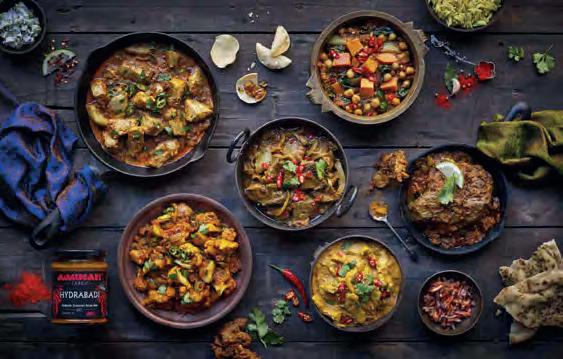



















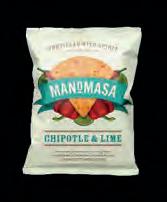

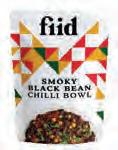

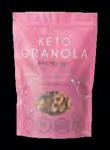





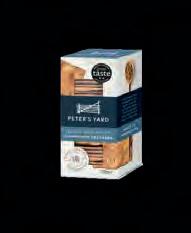








Castile and León punched above its weight in this year’s Great Taste awards with a galaxy of stars for its food and drink products, including a remarkable number of 3-star winners
IT’S TESTAMENT TO the quality of food and drink produced in Spain that its products are perennial award-winners at Great Taste. This year is no different, with more than 200 foods from the country winning stars at the awards, but dig a little deeper into the numbers and there is one region that stands out with an extraordinary number of winners.
More than 50 products from Castile and León in the North West of Spain were recognised with stars at this year’s awards, with six earning the top 3-star honour – more than 20% of all the 3-star products from Spain.
Part of the reason for this success is down to the region’s strong food culture, which is rooted in its landscape and traditional craft skills. Castile and León is home to a wealth of artisan producers, who make good use of the outstanding natural produce.
Cheesemaker María José Casillas, owner of La Quesería de María in Lanzahíta, is a perfect example of this culture. She set up her dairy in 2017 with a mission to make cheese that reflected the Tiétar Valley in Ávila. She makes cheeses using goats’ milk from two local farms, including Campante, which has just won a 3-star.
“María was jumping for joy when she received the news,” says sales director Víctor Díaz. “It is a proud moment that a cheese factory as small as ours – we only made 18,000 cheeses last year - has had international significance in such prestigious awards.”
Named after María’s father, whose nickname was ‘Campante’ (referring to a carefree and proud person), the hard cheese is made early each morning in a small 400-litre vat and is aged for six months, until it has a smooth texture with the occasional crunchy crystal. The flavour balances bright citrus acidity and pleasant lactic flavours. One of the company’s other products, a soft mouldripened cheese called Conde, also won a 2-star at Great Taste.
Tradition and family values are at the heart of El Robledal Calluna Honey, another 3-star food from Castile and León. Made in Almanza (León), the honey comes from bees that harvest nectar from a special type of heather.

“Only with right conditions does a very rare heather, called Calluna vulgaris, bloom during the last flowering of the summer,” explains owner
Jesús Montes Rodríguez, who learned beekeeping from his father. He currently works with about 600 hives at the foot of the Picos de Europa mountains. “The honey I produce is totally artisan and natural, based on the flowering of this species,” he says. Dark and viscous with complex pine and floral flavours, Calluna Honey was the only honey to win a 3-star in the whole of Spain in 2023.
Cheese and honey were not the only traditional foods from the region recognised at the awards. Castile and León is also home to
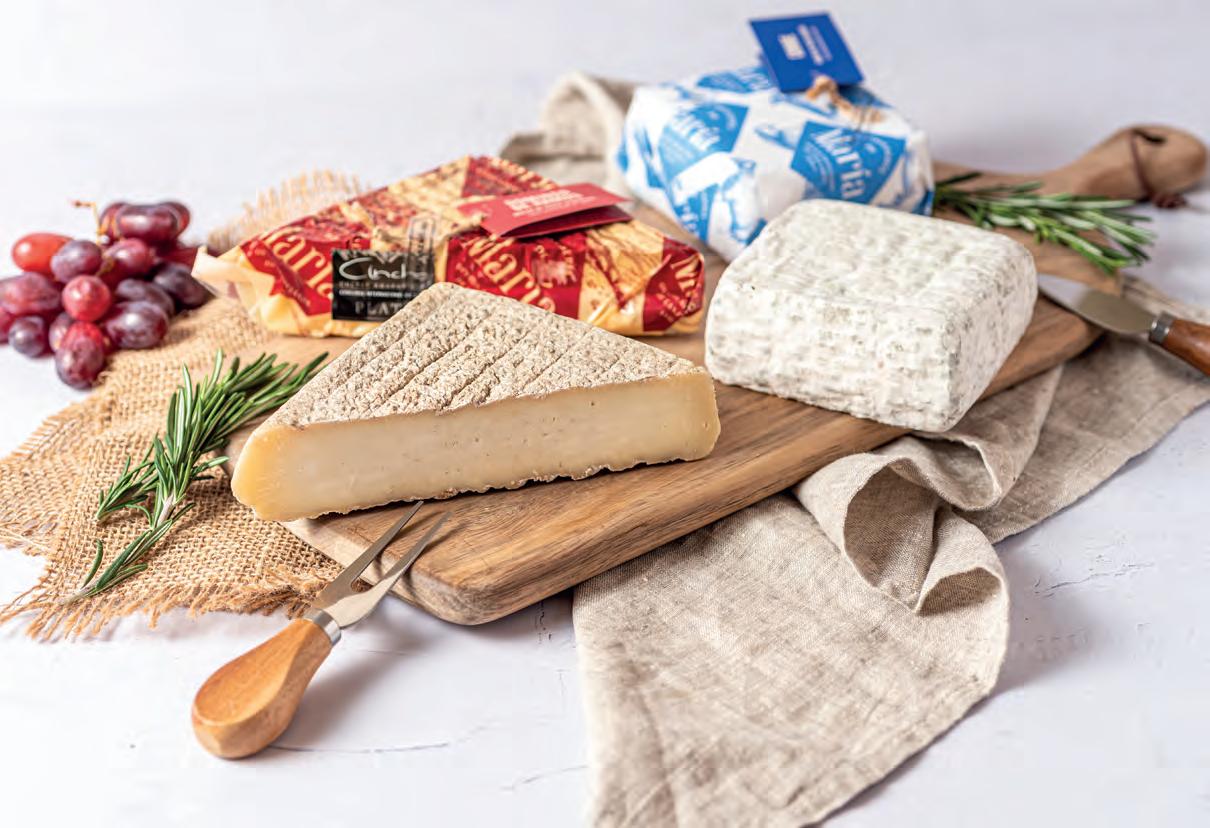
some of the best charcuterie in Spain, which was reflected by a remarkable haul of 3-star products for its cured meats.
Cecina de León from Embutidos Ferju – a smoked, cured beef, which is protected with

a Protected Geographical Indication (PGI) –certainly impressed the judges. The company in Pobladura de Pelayo García, which was founded 35 years ago by the Ferju family, won a 3-star for the product with judges raving about the “wonderful marbling”, “melt-in-the-mouth” texture and “rich flavour”.
The adulation is not new to Pablo Ferrero Juan, who runs the business with his mother. His Cecina also won 3-stars in 2020 and 2021. “These awards are the result of great dedication, perseverance and above all a search for the highest quality in our products,” he says. “We smoke our products with natural oak and holm
grandmother started making charcuterie at the family grocery store in Geras, says that one of the secrets of their Suprema de Cecina is using beef from cattle that graze mountain pastures around the village where it is made.
“We elaborate our deli meats in a small village in the mountains of León at 1200m where a microclimate allows the best conditions for curing deli meats,” she says. “The secret our grandmother taught us was simple: care and patience.”
The secret of Cecina Wagyu from Embutidos El Castro, a small family company in Castrocalbón (León), is the use of wagyu beef, which gives
production, to the wisdom of our elders, to flavour, to quality, to the enjoyment of the senses.”
It wasn’t just cured beef that brought enjoyment to the judges’ senses. Fourthgeneration company Ibéricos Montellano in Salamanca won 3 stars for its El Elegido Ibérico ham, made with pork from pigs fed on acorns.
“There are many reasons that make these hams stand out from other similar hams,” says Carmen Hernández Curto, communications director, whose parents set up the business. “We still use traditional methods – the shutters are opened and closed daily, we shape

oak firewood, and we always finish our curing with a final phase in the cellar, naturally. The climate of the area where we are located is essential for the production of high-quality cured meats and sausages.”
Geras-based Embutidos Entrepeñas also won a top 3-star award for its Suprema de Cecina, which is similar to Cecina de León but is not covered by the PGI because it is pressed into a rectangular shape to make slicing easier. Beef from five-year-old cattle is salted with sea salt, cured for at up to 18 months and lightly smoked over oak.
Natalia Ordóñez Gutiérrez, whose
the final cured meat a rich, buttery flavour that earned it high praise and 3 stars from Great Taste judges.
Part of the company’s Selección del Viejo Reino brand, the wagyu beef is carefully selected for just the right level of marbling and are cured for around 18 months.
“The selected pieces have to have the right degree of fat infiltration so that the final flavour is smooth, intense, juicy and aromatic,” says the company. “In today’s society, where immediacy, haste and short-term economic returns are the order of the day, our products are an oasis in the desert. They give value to tradition, to artisan
Our pick of products with two stars in 2023
the hams by hand, our salting is manual with a very low salt point and they are turned every day.”
Other techniques include spreading lard on the hams by hand, hanging them on ropes so that they have their own space and constantly checking and changing the climate in the maturing rooms. It all adds up to a melting texture and complex flavour. Or as Montellano says: “It is a ham that makes you happy.”
The same could be said for all Castile and León’s Great Taste award-winners. Reach for the stars and happiness is almost guaranteed.
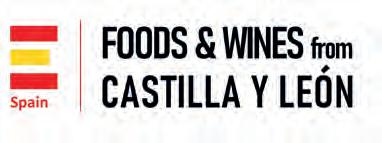
laqueseriademaria.com
mielrobledal.es
ferju.net
embutidosentrepenas.es
with 2-stars in 2023
Striploin Steak, Miguel Vergara
A cut obtained from the low loin, which has a firm texture and intense flavour.
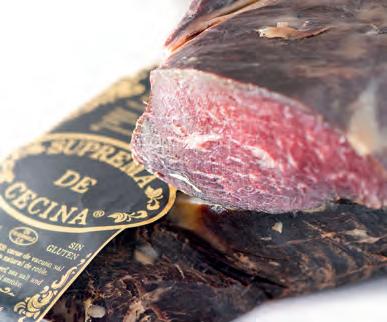

Miel de Brezo (Heather Honey), Miel Camino de Santiago
Summer honey from mountain heather, which has an intense aroma and bitter, salty notes.
Miel de Bosque (Forest Honey), La Cazurra
A raw honey from oak honeydew, which has floral and roasted malt notes.
Ciudad de Sansueña sheep’s cheese, Lácteas Zamoro
Matured for at least 11 months, this hard, unpasteurised cheese has an intense flavour and fine texture.
Miel de Castaño (Chestnut Honey), Miel de León
Organic honey from apiaries located in chestnut woods in Bierzo, which has a sweet, salty and slightly bitter flavour.
Miel de Bosque (Forest Honey), Iberian Honey Bee
This tiny producer won a 2-star for its Forest Honey, but also its Chestnut and Heather Honeys.
Miel, Rey Melícola
Víctor Fontecha Gutiérrez makes a range of stunning honeys high up in Valverde de la Sierra.
La Quinta Suckling Pig Boneless Roll, Cárnicas Tabladillo
This ready-to-roast Segovia cochinillo (suckling pig) is sweet and tender, and creates wonderfully crispy crackling.
pcelcastro.com

ibericosmontellano.com
For more information, visit empresas.jcyl.es or contact: promocion.ice@jcyl.es
The low bar set by supermarket bread is an opportunity for independents to sell something much better. Whether you choose to make and bake it or defer to expert bakers, you would be a fool to let the supermarkets have your bread and butter.
 By Tanwen Dawn-Hiscox
By Tanwen Dawn-Hiscox
NOTHING EXEMPLIFIES THE quality standards at supermarkets quite as well as bread.
The mid-century race to reduce costs and increase shelf life gave rise to a range of products our ancestors wouldn’t even recognise, and the supermarkets’ attempts to redeem their offering with so-called freshly baked bread have fallen short.
As shoppers look for alternatives to additive-ridden, nutritionally vacuous products, retailers have an opportunity to sell real, high quality bread which will not only blow customers away, but have them coming back for more.
"The law as it stands doesn't really protect shoppers from being misled and it doesn't protect small independent bakeries that are doing things in certain ways”, Chris Young, the leader of the Real Bread Campaign, which advocates for the protection of breadmaking standards in the UK, told FFD
Supermarkets are allowed to call bread that has been prepared and baked once in a foreign country, frozen, transported and baked a second time in store, ‘fresh bread’. There is no legal definition of what classifies bread as wholegrain, or sourdough, yet supermarkets charge a premium for products that purport to be something they’re not.
"So selling genuine sourdough and real bread really is, from a small independent retailer's point of view, an opportunity to have a real USP, giving you a whole load of other things to talk about that supermarkets have to pay marketing companies a huge fortune to make up," Young said.
There are, of course, different opinions about what defines great bread, but baking it fresh with simple ingredients is a good place to start.
At Barbakan deli in Manchester, bread has been the bedrock of the business since it was founded in the 1964 – it was actually a bakery before it was a shop.

As well as selling a range of Continental breads, pastries, cakes and sandwiches, it supplies 60-odd wholesale clients.
“If you come to Barbakan, you’re going to get fresh bread. We’re known for it.” says owner Frankie Dyer, who joined her father Stefan Najduch at the business five years ago, and is now the managing director.
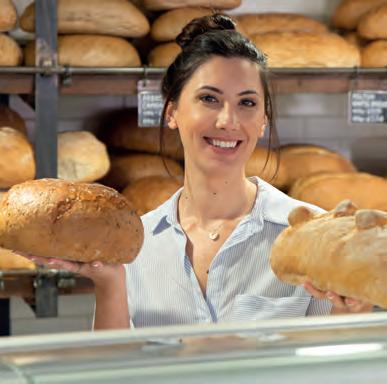
And while it is important to keep on top of baking trends – like the popular San Franciscostyle sourdough or “anything that’s been featured on TV programmes like Stanley Tucci or Great British Bake Off” – the bestsellers follow the traditional baking methods of the Continent. You’ll find everything you need from baguettes to beigels, rye bread to focaccia, flatbreads to soda bread.
Crucially, everything is baked daily using high-quality flour.
“Flour is the most important part of your bread,” says Dyer. Theirs is imported from Germany and France or bought locally from the Nelstrops flour mill in Stockport. “We’re interested in really good protein content in the flour, and we don’t use additives.”
And why would they? “It’s fresh bread –
our customers know that if they’re buying a loaf, they’ve got three or four days to eat it.”
At the other end of the country, flour is just as vital for Plymouth bakery Heyl, which specialises in plant-based slow-fermented loaves and pastries. The Devon-based business makes everything with ancient or heritage grains, which pre-date the hybrid varieties developed in the 1950s to increase yields. Though it is a small operation compared to Barbakan, it also supplies a number of independents.
“We’re at the very hand-crafted end of the artisan scale,” says owner Sam Dennis. He and his partner Kate Langston, who started the business in 2020, make everything from scratch on site.
Like other emergent bakers in the UK, the style of bread they make is regionalised, uses UK grain and British mills, and contains more wheat kernel than most commercially available loaves.
As explained by flour miller Andrew Gilhepsie of Devon’s Fresh Flour Co., who supplies Heyl, “the flavour of bread is in the bran, if you want the caramel and the biscuit and toffee”.
To achieve a great loaf, he says flour should be used while it is still fresh and reactive.
“What a baker needs to do is work with that instability, because that’s where the nutrients are, and that’s what makes it taste nice.”
Regardless of style or method, whether or not a retailer should bake their own bread is a choice they have to make based on their ambitions.
“You can teach yourself to make a very lovely loaf of bread, or there are courses that you can go to - it’s not hard,” says Dyer.
“But if you’re making 20,000 loaves a week, you have to have professional bakers in.”
And if you’re making bread with ancient, heritage or population (genetically diverse) grains, Gilhepsie says, it’s not just the cost of running a bakery (energy, equipment, specialised insurance) that you need to factor in but you’ll need to have experts to hand.
“It’s a real skill. The gluten development, the acidity development, the development of all the bacteria, it takes a skilled eye. It takes time. The weather, the temperature, the moisture in the flour, there are so many variants that will
Your customers care about provenance, how the grain is bred, milled and where it’s from, and this will make the high price of good bread more palatable.
Consider an approach like The Mill bakery in Berkeley, California, which has a chalk board above the counter displaying the grain, the farmer, the flour and the bread, changed according to seasonality and availability.
Follow the Real Bread Campaign’s advice, and list the ingredients lists on your freshly baked bread. You're not legally obliged to, but it your three, four, or even ten ingredients will give you a point of difference to the the supermarkets’ dozens.
Assuming you’re stocking a quality product, the price of your bread should matter less. An artisan loaf barely costs more than a high street chain coffee, and if it's good enough, your customers won’t go back to the cheap stuff.
If you’re still worried about getting the most out of your loaf, you might consider the added value of good bread to your foodservice offering. If you spend any time on social media, you’ll know that big, filled sandwiches are all the rage. You’ll be limited on how many fillings you can put in there if you have bad bread – it’s only going to get soggy.
You can teach yourself to make a very lovely loaf of bread, or there are courses that you can go to - it’s not hard
The Keto Ginger Cake has a vibrant aroma of ginger paired with an


Our work is never hurried, our flavour never compromised.
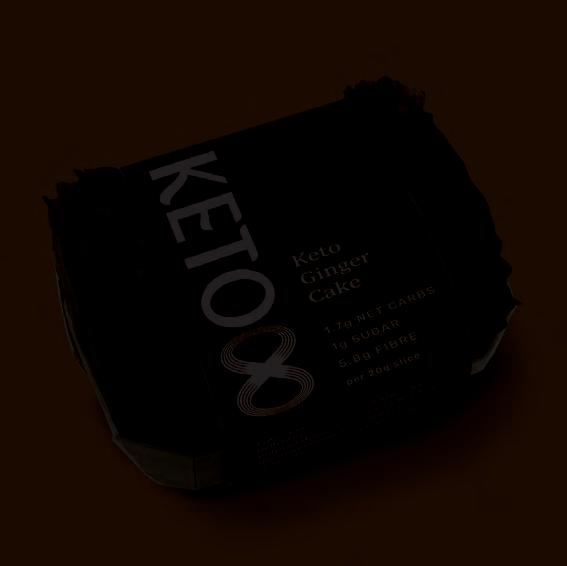

Our award-winning flour is produced from the finest ancient grains which are sustainably grown in the beautiful British countryside. Our entire range carry the highly sought after Great Taste 2 and 3 star awards, in recognition of outstanding quality and flavour.





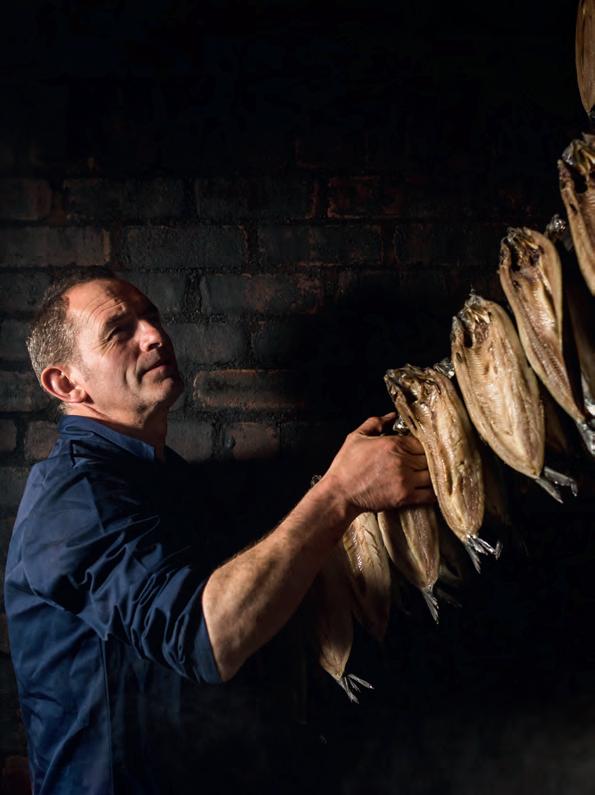
Available in 1kg and 20kg bags. Minimum order 2 boxes of 10 × 1 kg bags. No delivery charges. Call or email today for a trade price list



have an impact on what your dough does.”
Dugard & Daughters in South London is a good example of why it might be best to stick to your own strengths and buy loaves in.
“I don’t have the space to bake, I haven’t got kitchens, I haven’t got ovens and I’ve got a team of butchers, there’s just no way there would ever be any baking happening,” says owner Rosie Dugard.
Ever since launching the butcher & deli in Herne Hill ten years ago, followed by a second in Earlsfield, the Dugards have stocked bread from neighbouring Blackbird Bakery. Their bestseller is a sourdough boule, which sits alongside the baker’s baguettes and seeded loaves.

“We get it fresh every morning. I place orders weekly and I base them on what we sold the previous Monday,” says Dugard. “I look at Monday and if I had wastage then I lower my orders and I up them in the reverse.”
And this largely works for them, even with other businesses in the vicinity also selling bread, because there isn’t too much overlap between customer bases.
“Certainly, since we very first opened our bread sales have gone down, on a Saturday we used to do 40 sourdoughs in amongst other stuff. Now we probably do 20, because of other smaller things that have opened.
“But overall, our sales haven’t dipped.”
They would never consider not selling bread at all, because it’s such a draw, and this is a sentiment shared by wholesale customers at Heyl.
“I don’t think our retailers are paying their rent off bread sales, but what it is doing is getting people through the door,” says Dennis.
“It’s one of those products that attracts people and then they come in and buy five other things while they’re there, even though they only came in to buy a loaf of bread.”
The “baguette de tradition française” is made from wheat flour, water, yeast – baker’s or a pre-ferment – and common salt.
The iconic bâton shape and size of a baguette is mandated by French law (though, we suspect, unlikely policed): it must weigh between 250g and 300g, measure between 55cm and 65cm, and have a diameter between 6 and 7cm.
So dear to the French is the protection of this tradition that in 2022, the ‘artisanal know-how and culture of baguette bread’ was added to the UNESCO Intangible Cultural Heritage Lists.
The Real Bread Campaign, which advocates for the protection of breadmaking standards in the UK, has set out to give a legal definition to different types of bread. In the meantime, it has created a voluntary scheme to bring more bakers on board.
This is bread made with no chemical raising agents, what are known as processing aids, or additives.
Real Bread can be risen with baker’s yeast, it can be unleavened and it can contain any number of additional ingredients like seeds and nuts, oils, herbs and fruits.
Rather than referring to a type of bread, sourdough is a process whereby bread is leavened using a sourdough starter – the result of nourishing yeasts and lactic acid bacteria present on the surface of flour.
As with the campaign’s definition of Real Bread, Real Sourdough can be used to make any type of bread, and contain any number of additional ingredients, but no additives, processing aids, chemical raising agents or, unlike Real Bread, baker’s yeast.

And let’s face it, bread is not what’s drawing customers into the multiples. So, however independents decide to approach this category, having great bread will give them an edge on the supermarkets.
Sourdough is everywhere these days. But the Tartine-style is considered by some in the baking world to be the holy grail of naturally leavened bread. Invented by San Francisco baker Chad Robertson, the starter is made with a mix of white and brown flour, and less of it is used in the leaven – 9% of the total weight of flour, compared with 15-20% in other recipes. Because it contains less starter, it takes longer to rise, which is said to create more complex flavours.
Visit sustainweb.org/realbread/ to join the campaign or sign up to the ‘Loaf Mark’ scheme to help you market your Real Bread and Real Sourdough products.

A new generation of bakers including ex-Flor pastry chef Helen Evans, who recently opened Eric’s in East Dulwich, Ben MacKinnon at E5 Bakehouse, and New Orleans baker Graison Gill at Alma Mill, are championing a new kind of British bread. The bran-forward, heritage, ancient and population grain breads are made with freshly milled flour, as the bakers either have their own mills or buy their flour direct from farmers and millers. High hydration levels and slow ferments ensure Alma Mill’s 100% wholemeal Country Loaf, E5’s Seeded Stockholm and Eric’s sourdough-based porridge bread retain moisture and an open crumb. Evans even sneaks wholemeal wheat and emmer flour into her croissants, without compromising on aeration.
It’s one of those products that attracts people and then they come in and buy five other things while they’re there, even though they only came in to buy a loaf of bread.”
Nazani Tea is based on transparency, sustainability and ethical sourcing, and specialises in single batch, single estate and single origin herbal infusions from across the world. All our herbals are handpicked, and are either wild foraged, organic or naturally grown without the use of any pesticides or chemicals. They are the purest expression of the terroir, the vintage and the varietal. Quote FFD23 when enquiring


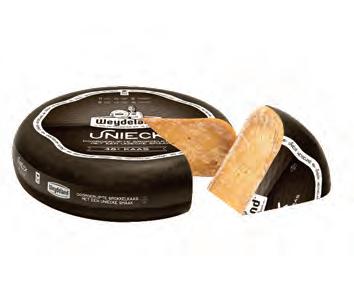



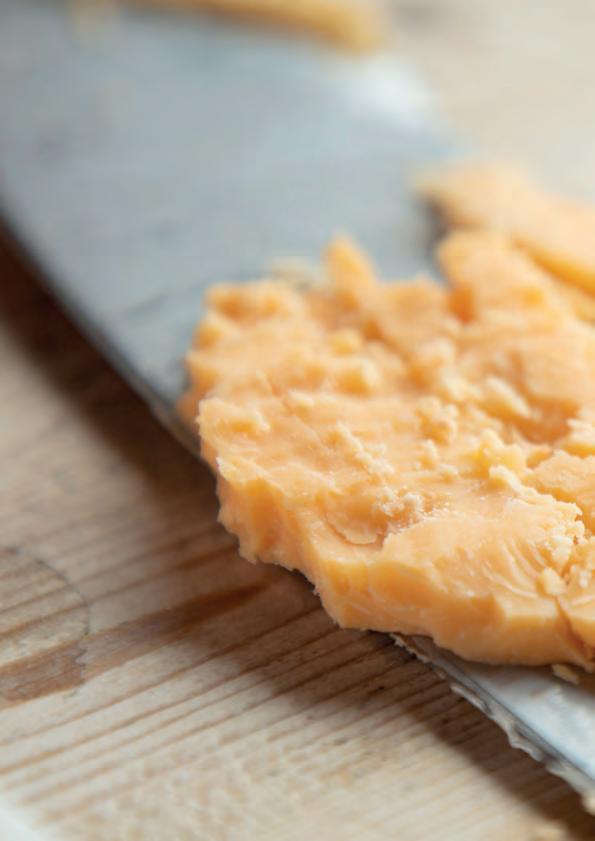














The temperature of this dish is an important factor. It needs to be room temperature to allow all the flavours to sing. What really makes this dish is the quality of the ingredients.
Makes four portions, multiply as needed
Ingredients:
800g heritage tomatoes
150ml good olive oil
2 tsp sherry vinegar
1 small red onion, peeled and finely sliced
2 ripe white peaches, stone removed, sliced into wedges
4 Italian Burrata (approximately 400g)
1 tbsp basil leaves
Sea salt flakes and freshly ground Black pepper
Method:
Prepare the tomatoes by slicing into large chunks and seasoning with salt and pepper. Place the sliced tomatoes into a bowl and drizzle with the vinegar and olive oil. Allow to sit for 3-5 minutes so the seasoning can penetrate. Put the tomatoes onto your serving plate. Tear the burrata into large pieces and season with salt and pepper. Top the tomatoes with the burrata and scatter over the red onion, peach and basil. Spoon over the dressing from the tomato bowl and serve immediately.
Recipe by Mark Kempson, head chef at Kitchen W8 kitchenw8.com
Cardiff-based A2Z Food Safety has released a monitoring app called TempCheck, which it says will help businesses comply with hygiene regulations. The app allows users to monitor and record food temperatures at each of the stages of use – in transit and then in the kitchen – as well as to file reports and checks. It is available on iOS, Android and Amazon. a2zfoodsafety.co.uk/ tempcheck-app

Sustainable packaging solutions brand Klöckner Pentaplast has launched a recyclable vacuum film which it says is suitable for all vacuum machines. Using US brand Dow’s functionalized polymers to create a a high tensile strength 100% recyclable barrier film, the firm says this is “the first step towards a circular economy for food packaging flexible films.” kpfilms.com

Premium chocolate maker Valrhona has introduced a new item to its range called Hukambi, a 53% dark milk, single origin Brazilian cocoa. Available in 3kg bags, the chips combine cocoa, French milk and Madagascan vanilla for a result which Valrhona says is “bitter yet subtly sweet, offering surprising notes of fruit and cookies.” valrhona.com



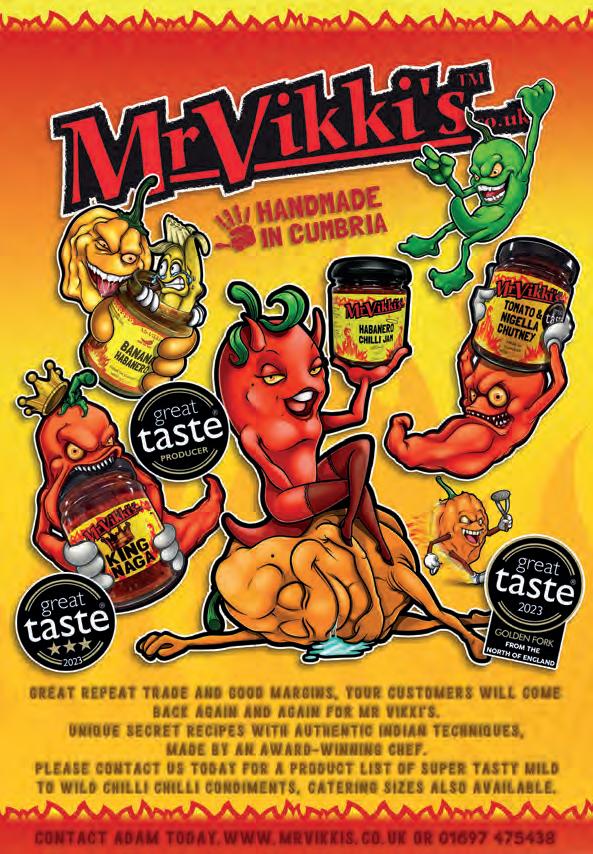
For generations now, our family has been making a real commitment to taste and excellence, hoping to help you add a bit of magic to every mealtime. www.jameswhelanbutchers.com |

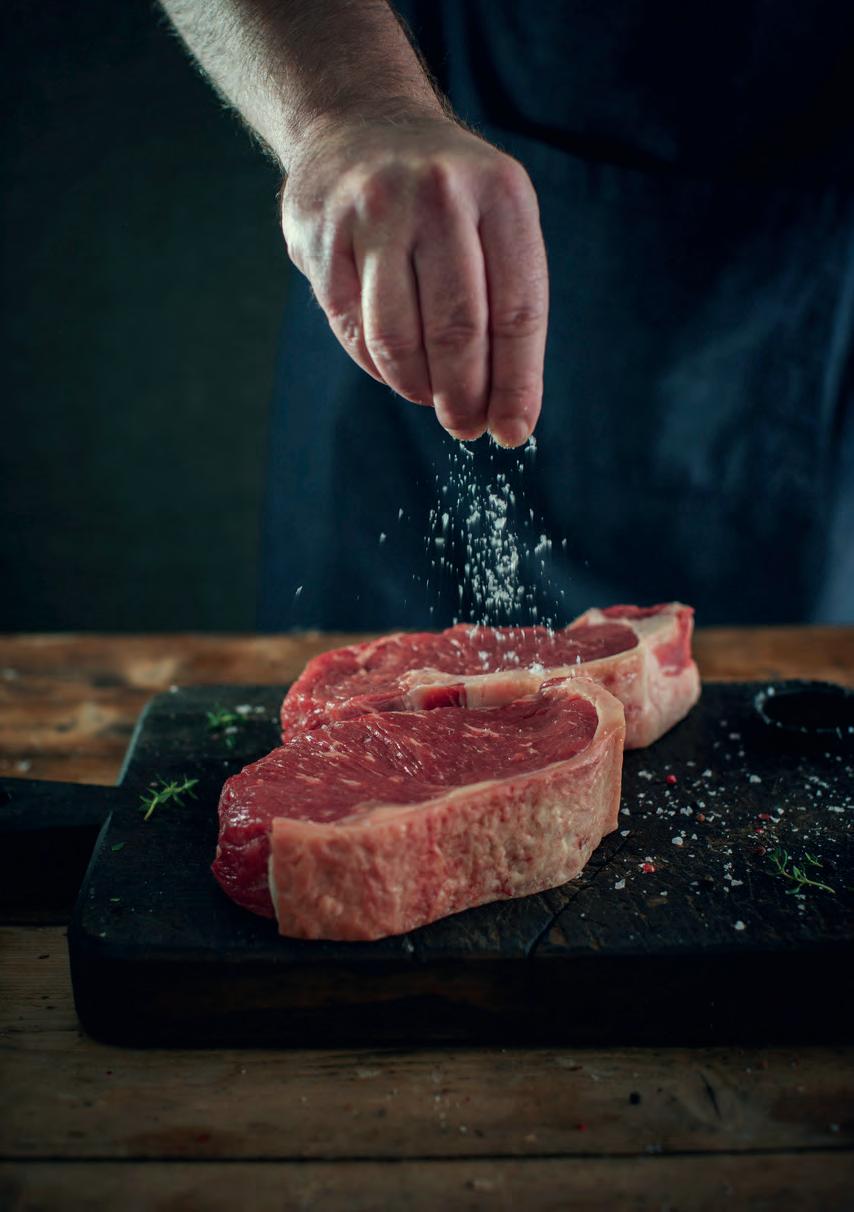
TOP
As recommended by Henry Jeffreys
Flint Vineyards Pinot Noir Précoce 2022


Delightfully fresh but full-flavoured red from Norfolk.
RRP £24.99. flintvineyard.com
Lyme Bay Chardonnay 2020
WHEN HENRY JEFFREYS was commissioned to write a book about English wine, he was dubious.
“I thought, why not just get wine from France?” he tells FFD. “They’ve been doing it a long time, they’re quite good at it – it seemed a bit of a mad thing to make wine in England.”
As a retailer, you might think something similar – why would you stock English wine, when you can trust the quality of what comes from abroad?
Writing his book, Vines in a Cold Climate: The People Behind The English Wine Revolution, challenged Jeffreys’ preconceptions. He learned that in the past 30 years, English wine “went from a complete joke to – some of it – world class.”
And British retailers would do well to consider it.
A turning point came in the late 1980s, when the founders of Nyetimber ventured that the acidity of British-grown grapes was well suited to Champagne-style sparkling, a theory which a number of other producers have since explored. Not only that, but in that timeframe, significant investment has been poured into the industry, and climate change has given us semiregular temperature peaks in the low 30°Cs, which makes a huge difference to ripeness.
So now, not only do we have excellent sparkling wines, but some great stills, too.
“English wine is so much more diverse and interesting than I realised,” Jeffreys says.
As he sees it, the standard of English wine is definitely good enough for retailers to swap out some of their Continental wines for English ones, assuming their customers are willing to pay more than £10 for a bottle.
“If you can get up to £15, then you start getting some really really nice English wine,” he says.
And if a shop happens to be in a wine
producing region – like Kent, Sussex, Hampshire or Essex – it would be missing a trick not to sell any.
“People love opening a bottle of wine and saying, ‘this is made by Bob, who lives down the road’,” he says.
The gin boom, while seeming to have peaked, “is still a very good business model –to get that local market in the bag, and then try and expand nationally.”
Customers will gladly pay a higher price for a bottle of local, craft gin, even though established brands are cheaper – and arguably better.
“English wine hasn’t even begun to tap into that local market yet,” he says.
There are things to look forward to as the industry continues to come into its own – Jeffreys expects to see much more still Chardonnay on the market – the fervour with which producers are planting it may even cause a glut in grapes, which could bring prices down.
Even now, he says, it’s possible to get an English Chardonnay comparable to a Chablis or a Mâcon for £20 from grapes grown in Essex, or from Kent producers Chapel Down, or Gusbourne.
“If people are white Burgundy drinkers or more upmarket Chilean or Australian Chardonnays, then English Chardonnay really has a lot to offer, and it’s coming on hugely,” he says.
We’re also about to see wave of English rosé, which Jeffreys says will be “the next big thing”, and more stills: “very, very small quantities of very good Pinot Noir”.
That said, it may not yet be time to sell nothing but English wine, as the quality of some of it is still in development.
“You do get a bit of a palate for English wine,” says Jeffreys. “It’s very acid, it doesn’t have a voluptuousness to it. A lot of it is still
Consistently one of the best and best value Chardonnays in England. From a Devon producer but made with Essex fruit. RRP £25 lymebaywinery.co.uk
Langham Blanc de Blancs NV
It's tough but this Dorset producer is probably my favourite. This is exceptionally good. I’d much rather drink this than any Champagne at the same price. RRP £39.95 langhamwine.co.uk
Howl & Grappa ELEKTRON, Cornwall
Delightful orange wine made from a grape called Solaris in Cornwall. Looks a bit wacky but the zingy citrus fruit is hard to resist. RRP £24 bintwo.com

Folc 2022
A rosé brand that buys fruit from all over South East England. It’s been around for a few years but has really hit its stride with the 2022 vintage. English rosé should be the next big thing. RRP £20 drinkfolc.com

like that - it’s a challenging style for people who aren’t used to it.” But as more of it earns recognition internationally, he adds, “that’s getting less and less frequent.”
Good English wine does command a certain price, partly because the yields are so small. The climate is good for growing German grape varietals, but Britons aren’t quite ready to embrace those.
“People like to buy wine by grape variety that they’ve heard of. They like to buy Pinot Noir and Sauvignon Blanc.” Bacchus is increasingly common, he says, “perhaps because it doesn’t sound like it’s German.”
While the wine may be improving all the time, getting it to the shelves is being hampered by all manner of other factors, not least of all Brexit, global supply chain issues and a fair bit of naïve and undercooked branding that needs to improve to attract retail buyers and consumers.
“I don’t think English wine is selling itself as well as it could. There’s still more to do there to tell people that first of all England does do wine, and two, that it’s good.”
And that, dear retailer, is where you come in.
Vines in a Cold Climate: The People Behind The English Wine Revolution, atlantic-books. co.uk, RRP: £16.99

A newcomer to the Herefordshire winemaking community, Radlow Hundred has released its 2022 vintage, for the first time made with single grape varietals.
The Rondo 2022 is a medium bodied red which the producer says bears “delicate hints of vanilla, dark cherries and a damson nose”. On the palate, it has “notes of dark currants and a hint of pepper”, with an oaked edge and light tannins. The Solaris 2022 is described as a “crisp and fruity” white, of which “the honeydew melon nose is enlivened by the natural citrus of the late ripening vine.
The rosé is a blend of the two, which the producer says is “perfect for sunny alfresco dining.”

All three wines have an ABV of 12% and an RRP of £16.99.
The eighth-generation farm best known for producing Celtic Marches cider first planted grapes in 2020, after catching wind of French winemakers buying up land in England as a result of climate change.
Director Susan Vaughan told FFD: “We did a soil analysis and learned that we have suitable land conducive with growing grapes. We chose a south easterly spot with sloping ground on the farm, above the frost line and just shy of the top, so it misses the wind.”
Devon winemaker
Sandridge Barton introduced the first bottle to its ‘Label range’. The Blanc de Noirs is made with Pinot Noir grapes picked in 2020. It is golden in colour, and according to the producer, has an “inviting rich nose with good autolysis, clean fresh fruit with a lime, gooseberry and raspberry palate and ripe balanced finish.” RRP £45.
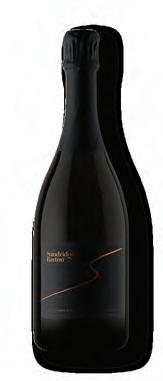
sandridgebarton.com
They planted hybrid grape varieties they knew would be resistant to English chills, disease, and would perform well in cooler climates – and steered clear of making sparkling wines, because they knew the category was already crowded.
"There are so many producers doing sparkling, why go into a market where there's lots of people to compete with. We thought, ‘let's
strike out and do something different’."
The producer is seeking customers in the on and offtrade, hoping to draw on its existing base.
“A lot of them are natural customers, they've got confidence in our product from buying our cider, so hopefully it will naturally evolve that they'll list our wine."

radlowhundred.co.uk

When I select my gins, I start by looking where they come from. Mine are mostly Scottish, and within Scotland I look to have a good geographical spread. Then I aim to cover all the gin profiles so – fruity, floral, spicy, sweet, smoky.
Price is another factor, but I tend to be guided by what customers are looking for, especially if it’s a bit different. If people ask for it, I'll get it for them. I take the view that if one person wants it, someone else probably wants it too, so I get a few bottles and see how it goes - but on that basis then end up with masses of gins.
I like a gin with a pretty label that I can see people buying, which I suppose puts me in the customers' shoes. At the end of the day, it has to taste good, but my approach isn't very scientific. Another retailer might tell you that they work out margins per square foot, which I don't. That's my approach, and it works for me.
We do sell other spirits. Suppliers keep telling me that rum is the next big thing, but they've been saying that for years and I'm not seeing more demand from customers yet.
It's all about striking a balance between having things to tempt them but also having the space to be able to respond to demand; trying to have something new and interesting on the shelves, and to be willing also to respond when people ask for things.
Somerset cider producer Pilton is now selling its ‘Stray Dog Cafe 2022’, a twelvemonth barrelaged keeved cider from 2021, blended with sweet keeved cider from 2022. Created in collaboration with Michelin-starred chef Merlin Labron-Johnson of Osip in Bruton, the medium dry 5.5% ABV cider is made with Brown's Apple, which the producer says brings refreshing acidity to balance out the sweetness. RRP £10.99.
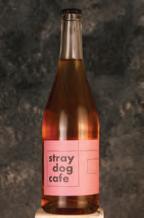
piltoncider.com
Wednesday’s Domaine is looking for more customers within independent retail as it grows its range of dealcoholised wines. Aimed at midweek wine drinkers looking for an alternative, the brand has sought to recreate the sensory elements of wine and a good match to pair with food. The white, ‘Piquant’, is made with Airen Bianco grapes, and the red, ‘Sanguine’, is made with Tempranillo. Both are de-alcoholised using spinning cone technology, which extracts alcohol while the wine is steam distilled at a low-temperature. To make up for the flavours, aromas and structure lost in the process, the
wines are supplemented with fruit and natural extracts. Quinine delivers “an almost imperceptible bitterness and a bit of length” and glycerin is added to give the wines body, the brand’s founder Luke Hemsley told FFD. Tannins are added to the red, giving it length and offsetting the grape’s “light, fruit-forward nature”. A ‘Summer Cuvée’ rosé which blends 89% white with 2% red is exclusively for sale online, but a rosé will likely feature in future releases, alongside a sparkling white and a sparkling rosé. RRP, £25.99 per two bottles.

wednesdaysdomaine.com

Scan & source new products in just 3 clicks
products in just 3 clicks
Scan & source new products in just 3 clicks


Food
Food
Drinks
Drinks
Drinks
Add a taste of France to your product listings
Add a taste of France to your product listings
Food Add a taste of France to your product listings



• 100% free
• 100% free
• 100% free
• Find new suppliers
• Request free samples
• Request free samples
• Request free samples
• Find new suppliers
• Find new suppliers
• Chat with producers
• Chat with producers
• Chat with producers




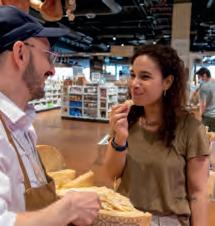

Garlic is the core crop but integrated livestock is one of the keys to soil health in The Garlic Farm’s naturefriendly system. ‘Pasture For Life’ certification now sits alongside the producers Organic standards.
By Barnes Edwards, director, The Garlic Farm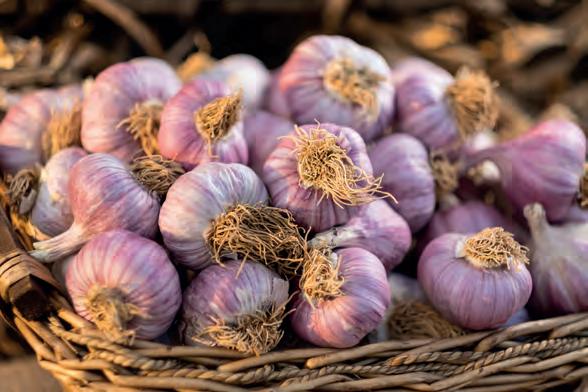
WE ARE ONE of approximately 150 farms across the UK that is ‘Pasture for Life’ certified. This verifies that the food we produce from animals on the farm have been wholly fed on nothing but pasture, their natural diet. There is an incredibly restorative power of grazing animals on pasture, with no supplementary or imported feed. This traditional method, in combination with some very modern, adaptive grazing techniques to ensure rest and recovery for the plants delivers positive impacts on environmental, animal, and human health.


The integration of livestock to a farming system was once commonplace but in the drive for yield at scale, monocropping and industrial processes have become widespread globally. Production of large quantities of food is a necessity for an increasing population and the techniques employed to deliver this over the past half century have been, on the one hand very successful and on the other, disastrous. The over-use of synthetic fertilisers, herbicides, fungicides, and pesticides has had a cumulatively destructive impact on the microbiology that supports the soil upon which life depends. Growing vast quantities of soy and grain to pump into beef cattle in feedlots has compounded this issue, as millions of acres of land and huge amount of fossil fuels are used to industrialise production.
There is another way. The positive power of ruminants in our ecosystem when sensitively
managed cannot be understated. Instead of creating huge damage to the climate, negative impact on animal welfare and the nutrient quality of food, a pastoral system can regenerate all these things, and more.
Enabling livestock eat a broad diversity of plants directly from the fields in a way that encourages the rest needed for vigorous regrowth makes sense. By feeding our cows and goats exclusively on pasture, with no imported feed, we are hoping to move toward a more sensible use of land and sensitive treatment of our animals. The ‘Pasture For Life’ membership organisation advocates this practise and the term ‘food miles’ is a good way to explain why this approach makes sense from a land-use perspective. Instead of eating concentrated feed, imported from another farm, or worse still, from deforested land on the other side of the world, our cattle only eat what is under their feet on our own farm. This system grows food for humans, in the form of meat, on land that could not grow human food. It also integrates fertility and improves soil on agricultural land that is used to grow food that humans can eat – in our case garlic!
The second way to explain why we take the pasture approach for our animals is health. Healthy animals produce healthy food. A good way to produce healthy animals is to let them live outside and express their natural behaviour and eat a hugely diverse range of plants that

have not been exposed to chemicals. Some say: “you are what you eat” and others have taken this theme further with the comment “you are what your food ate”.
The livestock on our farm do two jobs, they produce food, which at this moment is only available in our restaurant, so do please visit us on the Isle of Wight, we have lovely holiday accommodation! The second job our livestock do is improve the soil, which helps us grow good garlic. For three generations garlic has been the day job, the focus and the flavour that stimulates everything we do but it is only in recent years that we have begun to understand the power of pasture raised cows.
Do please look up Pasture for Life online. As well as a certification body they are also a membership organisation, open to everyone. Some say that if you eat, you are involved in farming. Learning more about and supporting Pasture for Life is a great way to be involved and to implement positive change in our food and farming system, even if you don’t eat meat.
www.thegarlicfarm.co.uk
01983 865 378
wholesale@thegarlicfarm.co.uk
Our full range is also available with Cotswold Fayre
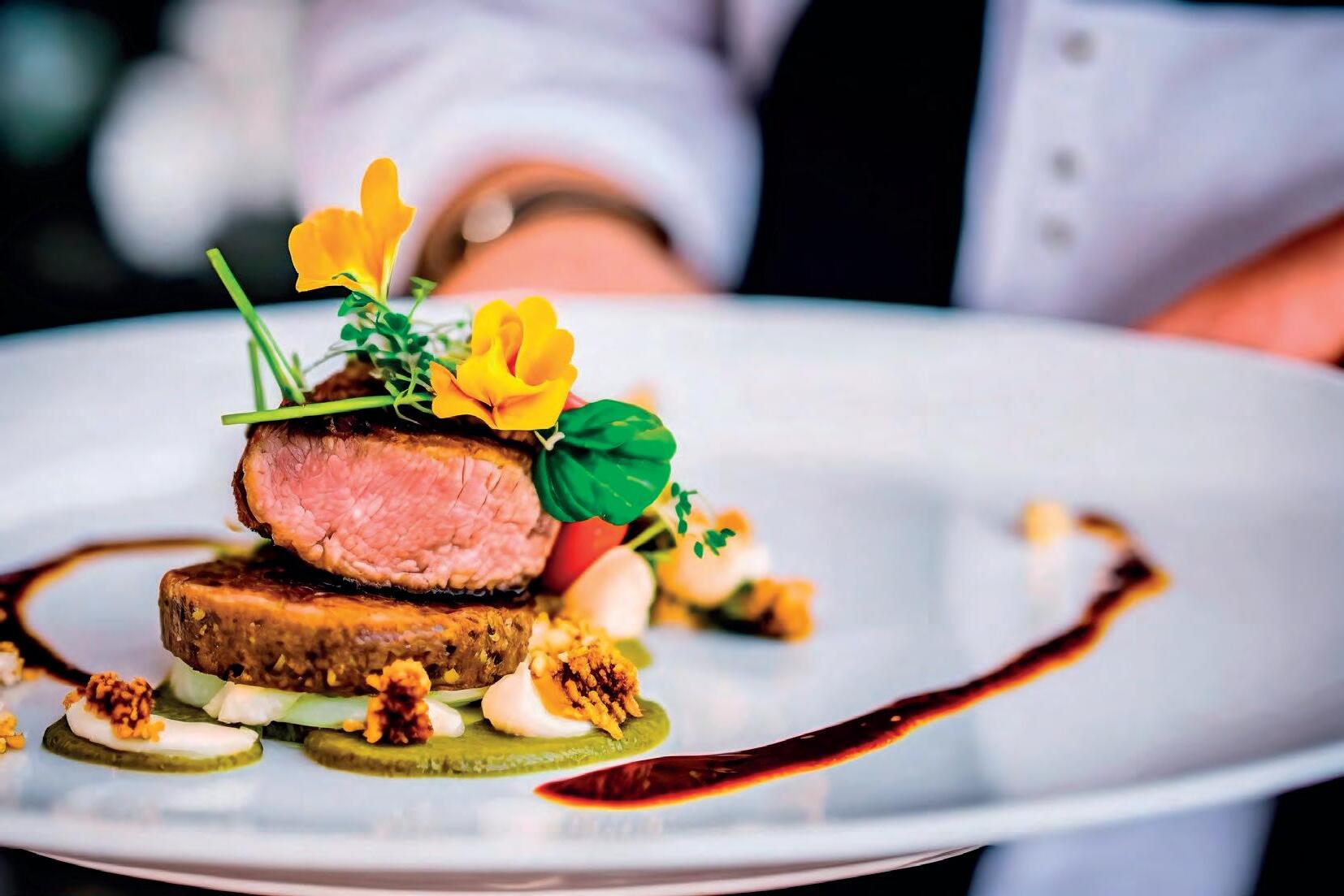
What were you doing before starting Karobi’s Ghee?
I’ve spent most of my life working for children’s services for the local county council. But initially, many years ago before I started it all, I actually worked as a chef.
I always maintained a passion for good food and I’d dabbled in various makings, I’ve had hobby businesses previously, making fruit products and vinegars, but my heart wasn’t really in it.
When I decided on a career change, I was making ghee for myself and everybody kept telling me how good it was so I decided to go for it.
I very quickly realised that I wasn’t going to be able to just sell plain ghee, so I developed a range of flavoured ghees. I also make a chocolate spread based on spiced ghee, good quality organic cocoa and honey from my local beekeeper which is proving quite popular.

Where did you start selling your ghees?
One of my dear friends is an artisan cheesemaker and sells raw milk cheese. I’ve always helped her out now and again with the market stall because I was passionate about
There’s nothing quite like the flavour of toasted butter. Ex-chef Karobi Hayden has captured it in a jar with her organic, grass-fed ghee, made in her home kitchen in the Cotswolds.
Interview by Tanwen Dawn-Hiscox
her product. So I’ve been selling at farmers’ markets and food festivals and still am. I haven’t gone into any kind of wholesale or retailers yet but I have had enquiries recently which have put me in a position where I’m able to do that.
Where do you get your dairy from?
It comes from an organic cooperative just south of Bristol. Because I’m buying it in large quantities all year round, it was difficult just to go to one farm. Their butter is a really good quality ingredient and that’s the base of my ghee.
How do you recommend that people use ghee?
It is a straightforward substitute for any kind of cooking oil or fat. You can substitute it for any kind of oil and it also makes the most fabulous hollandaise and béarnaise. It imparts the most amazing buttery flavour to anything you cook with it, and a lot of people have told me who are regular customers that they don’t use anything else for cooking because it improves everything, even just a scrambled or a fried egg, mushrooms, anything.
How do you make ghee?
Making ghee is a very lengthy process. It’s different from a clarified butter in that you’re separating the milk solids out and getting rid of all of the moisture.
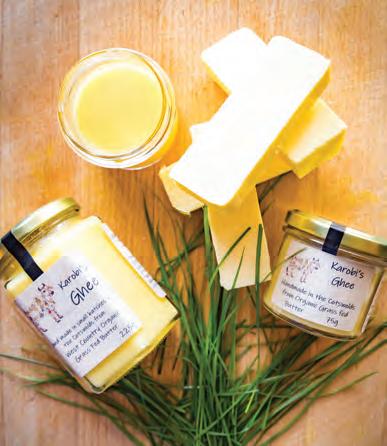
In order to retain the vitamin content, I keep it as low a temperature as possible. For the normal batch size that I do, it takes around six to eight hours to completely evaporate all the water.
The difference between ghee and clarified butter at this stage is that as soon as the milk solids start separating, with clarified butter you scoop them away, with ghee you leave them to caramelise, which is what gives the ghee its depth of flavour. That is a process that one has to be very careful about because it does burn but that’s what makes the difference between ghee and clarified butter and what gives it that beautiful beurre noisette fudge, caramel flavour.
What’s next for you?
I’ve started a collaboration with another producer, but we’re still in the development stage, so that’s a secret for now. karobisghee.co.uk
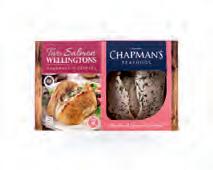



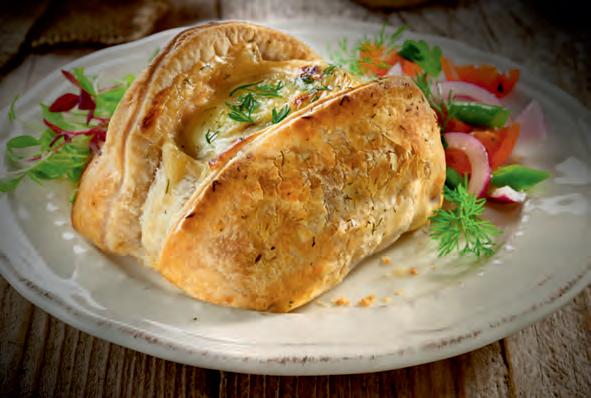




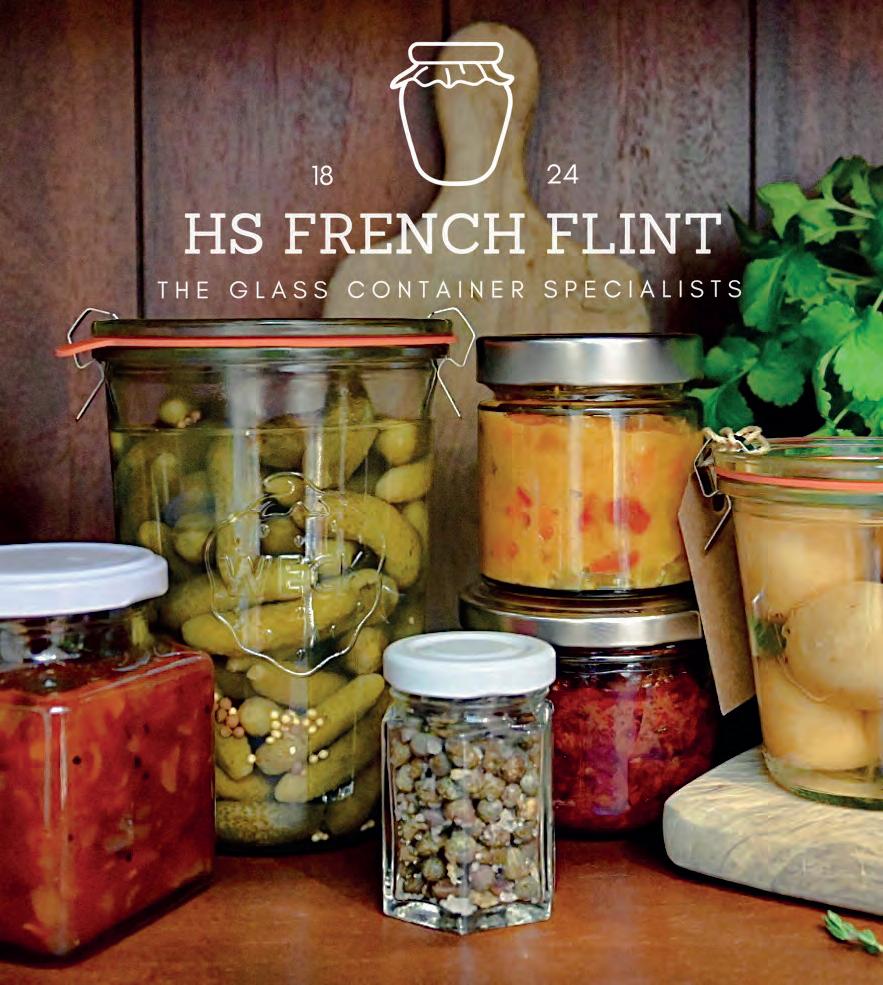

Popcorn producer Joe & Seph’s has gone all out with NPD this year. New items include sharing packs of Sweet & Salty and Toffee popcorn (RRP £2); a Salted Butter popcorn sharing pack (RRP, £2); a range of salted caramel truffles –with a new espresso martini SKU (RRP £12.99); Black Forest Gâteau flavoured popcorn (RRP £4) and Rocky Road popcorn bars (RRP £24 per case of 12).

Business development manager Paul Sopher told Road, “a super indulgent chocolate bar”, aligns with the more decadent end of the company’s offering, rather than their earlier popcorn bars, which were lighter.

Ever busy developing new products, the company has refreshed its festive range for 2023, featuring new flavours and gift boxes.
“The new gifting range builds on the success that we’ve had on last year”, said Sopher.
“The advent calendars have flown out every year we’ve done them, which is why almost every year we come up with a new
design. This year is no different.”
A new star-shaped gifting box will complement a pyramid-shaped one introduced last year. “Not only is it fantastic artwork
Equinox Organic’s latest launch is a chilled, Sicilian lemon kombucha, which it hopes will open up the fermented drinks category to a wider demographic. The producer says initial sales have given it confidence that it is a popular addition to its range of live drinks. The 275ml glass bottled kombucha also comes in Ginger, Raspberry & Elderflower, Peach & Turmeric and Original flavours. RRP £2.20. equinoxkombucha.com

Passionfruit liqueur is Manchester-based O’Donnell Moonshine’s latest proposition, for cocktails or drinking neat on ice. Its mason-jar receptacle comes with an optional pouring spout, sticking to the brand’s prohibition-inspired style without compromising on convenience. RRP £26.90 without, and £29.90 with the pouring lid.
odonnellmoonshine.co.uk
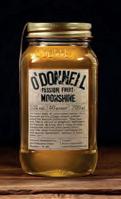
Rosebud Preserves has added a spicy Red Tomato Relish to its range, which it says captures the pleasure of eating outdoors in the summer. Tomatoes are paired with sweet peppers and cayenne pepper, making it the perfect accompaniment for burgers, Italian-style sandwiches, charcuterie boards – or, for a British take, a cheese scone. RRP £4.95 per 198g jar. rosebudpreserves.co.uk
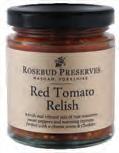
ex-Chardonnay barrels. In Brooklyn USA, Raaka sell a bourbon cask aged bar, while Canadian producer Kasma makes one from beans aged in Madeira wine barrels. It’s happening in Blighty too, with Alexander Chocolate creating a whisky barrel aged bar in collaboration with The Whisky Shop.
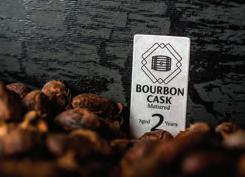

Bite-sized versions of choc-ice are Over the Moo’s latest addition to the plant-based ice cream category, which it hopes will further challenge the idea that non-dairy items don’t hit the mark when it comes to texture. The coconut-based ice cream pieces are available in caramel and vanilla flavours, and like the classic take on the format, are coated in a thin layer of dark chocolate. Each pack has eight bites in it and retails at £5.99. Available via CLF and Diverse.
overthemoo.co.uk
Following the onslaught of premium tequila, it’s no surprise that the spirit’s most notorious cocktail is undergoing a social makeover, with spicy margs finding their way onto the drinks list at Bude’s Temple restaurant, and Notting Hill’s Kuro, where the punchy cocktail is pepped up with the Japanese spice mixture
togarashi. Meanwhile, London’s finest taco purveyor, El Pastor, knocks one out laced with spicy mango.
3 Darkroom-chic A recent New York Times article delved into why US restaurants are opting for dim red lighting, stating it sells intimacy in dining rooms, and sets a tone of riskiness in bars. The Korean-Southern taco restaurant C As In Charlie has been chronicled for its darkroom-esque lighting, but the article also points to Bar Valentina in Manhattan, as well as Las Vegas’ Rouge Room, and the Capri Club in Los Angeles. Closer to home, London’s Meat Liquor has long been reclaiming the red light bulb, while a bar in Manchester has leaned in so heavily that it’s actually named Red Light.

Oat m!lk chocolate brand HAPPi has two Christmasthemed chocolate bars lined up for the festive season. Both the spiced Gingerbread and the peppermint flavoured Candy Cane are made with cacao from Columbian B4B chocolate manufacturer, Luker’s Chocolate. They are vegan, palm-oil free and sold in recyclable packaging. RRP £2.95 per 80g bar. happichoc.com

Tapping into the trend for American sweet treats, Popcorn Kitchen has added a Blueberry Muffin flavour to its range. It joins the ranks of Lemon Drizzle, Eton Mess, Cherry Bakewell, Chocolate Mint, and most recently, Chocolate Brownie flavoured kettle popped corn. RRP £1.49 per 40g bag. popcornkitchen.co.uk

Cornwall Pasta Co. is introducing what it says is the only Organic Chestnut Gnocchi made in the UK. The chestnut flour is sailed over from a single regenerative organic farm in Portugal and the pasta showcases the sweet, rich, nuttiness of chestnuts. Eat it simply with crème fraîche and a grating of cheese. cornwallpasta.com

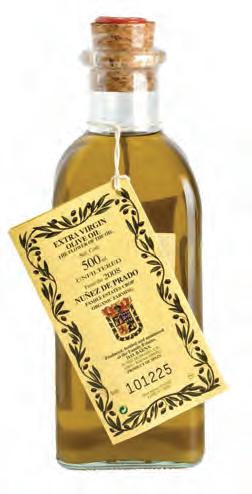 KATE ATTLEE, Owner, Sabzi
KATE ATTLEE, Owner, Sabzi

This organic Spanish extra virgin olive oil is very special to me; it’s the olive oil that most accurately brings to mind my father’s childhood in Iran; it’s untampered with, pure and just so delicious – and when I use it, I love that it evokes a taste of my family’s homeland. It’s called the ‘flower’ of the olive oil, and is both unpressed and unfiltered; it is rich and buttery but with a fruitiness that keeps it balanced. It’s exceptional in its ‘olive-y-ness’ and is a delight to have on standby in the kitchen. It will transform a bowl of pasta. One of my favourite ways to eat courgettes is simply sliced and fried with lemon, plenty of chilli and garlic before stirring through some really good pasta with a knob of butter, a handful of parmesan and a glug of this oil. Silky doesn’t cover it. It’s also wonderful on its own;good bread, a dish of this, salt and pepper and there’s not much else I’d need for a lovely evening… Except perhaps a glass of wine.
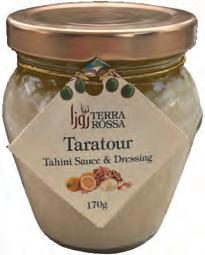
 By Tanwen Dawn-Hiscox
By Tanwen Dawn-Hiscox
Middle Eastern fine foods supplier Terra Rossa has developed three own label products to bring to the Speciality and Fine Food Show this September. The first, a lightly spiced ketchup-style condiment with za’atar, managing director Hanan Samara told FFD, has been on the cards “for donkey’s years”.
“It took us four months to get the flavours right,” she said.
As well as the classic spice mixture – a mix of herbs, spices, sesame seeds, sumac and salt –the Zaatar & Tomato Ketchup has a kick of chilli in it. Intended as a versatile ingredient, it can be used in the classic fashion with chips or in sandwiches, but also as a marinade, mixed into dips or cooked dishes.
The second addition to Terra Rossa’s books is a Taratour Tahini Sauce & Dressing,
described by Samara as “the precursor to houmous.” A mix of tahini, lemon juice and garlic, “it’s a must for anybody who eats falafel, shawarma and kebabs at home, in pita bread or as part of a sandwich”, and an accompaniment for grilled vegetables, fish or chicken, mixed into hot sauces, or drizzled over salad.
Finally, 170g jars of Plum tomatoes with Herby Zaatar and Extra Virgin Olive Oil, pitched as an ingredient for cooked dishes like risotto and pasta, as well as a topping for bread-based foods like pizza and bruschetta.
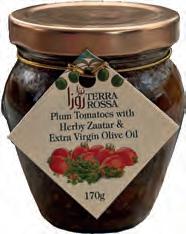
The three products come in 170g jars, available to trade in cases of six or 12, with a unit price of £2.50. The ketchup is priced at £2 per jar for trade.
terra-rossa.com
Rude Health has introduced a second iteration of its Soft & Instant Bircher Museli for people wanting breakfast on-the-go. The Apple and Cinnamon cereal, made with finely milled oats, is pitched as ‘overnight oats in an instant’ for consumers wishing to skip the coffee and croissant stop on their commute - with the addition of spices and apple pieces, giving it wider appeal than the plain version. As per the brand’s USP, the cereal is made with organic ingredients, and contains no additives or emulsifiers, GMO or dairy. Available via wholesalers including Auguste Noel and Suma. RRP £3.75 per 300g box. rudehealth.com

This extra virgin olive oil is very special to me; it’s untampered with, pure and just so delicious.


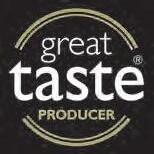
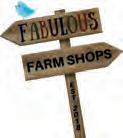







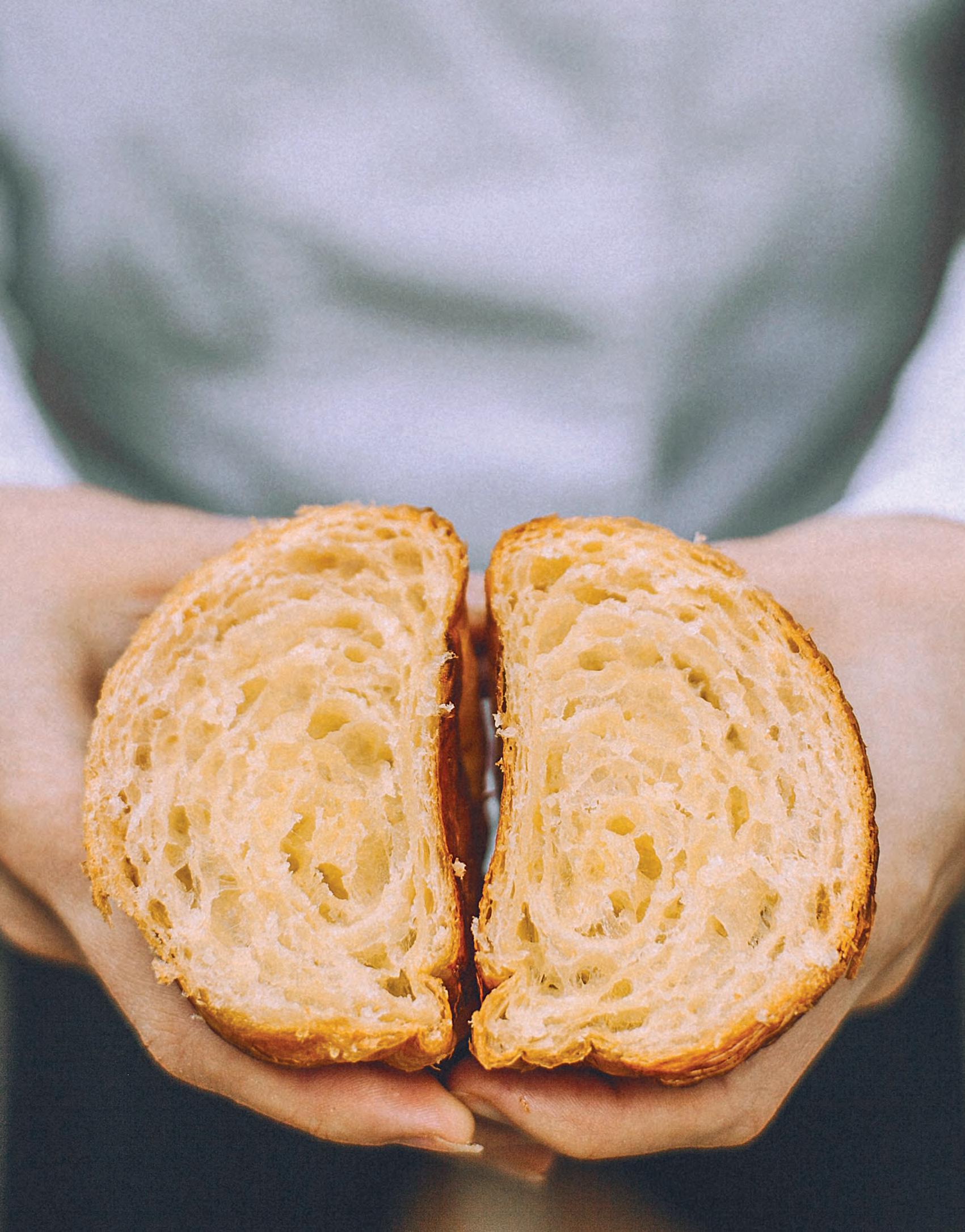
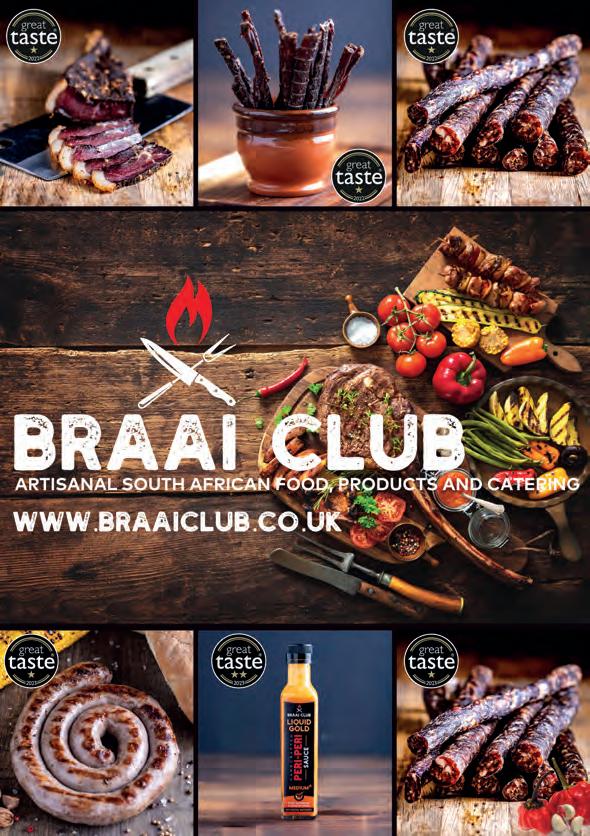

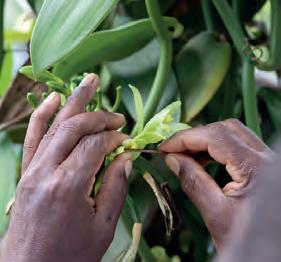



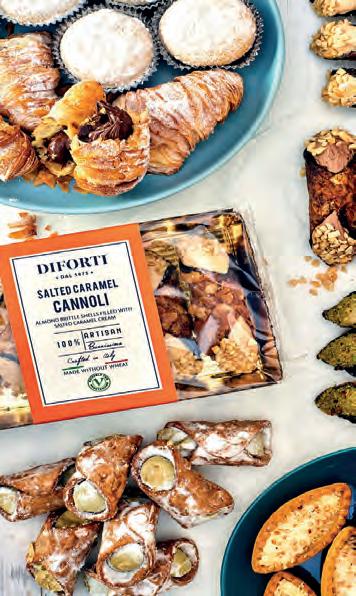
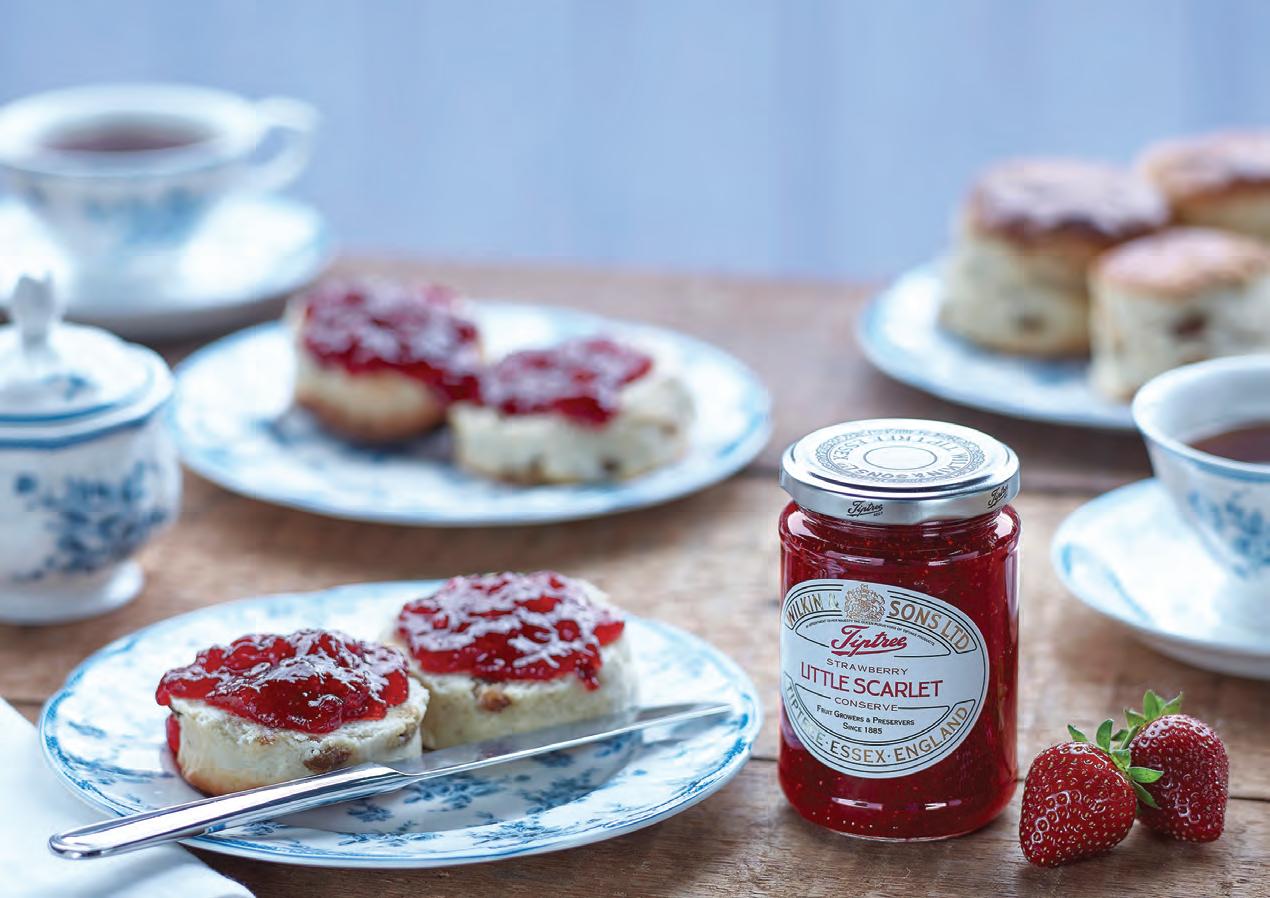
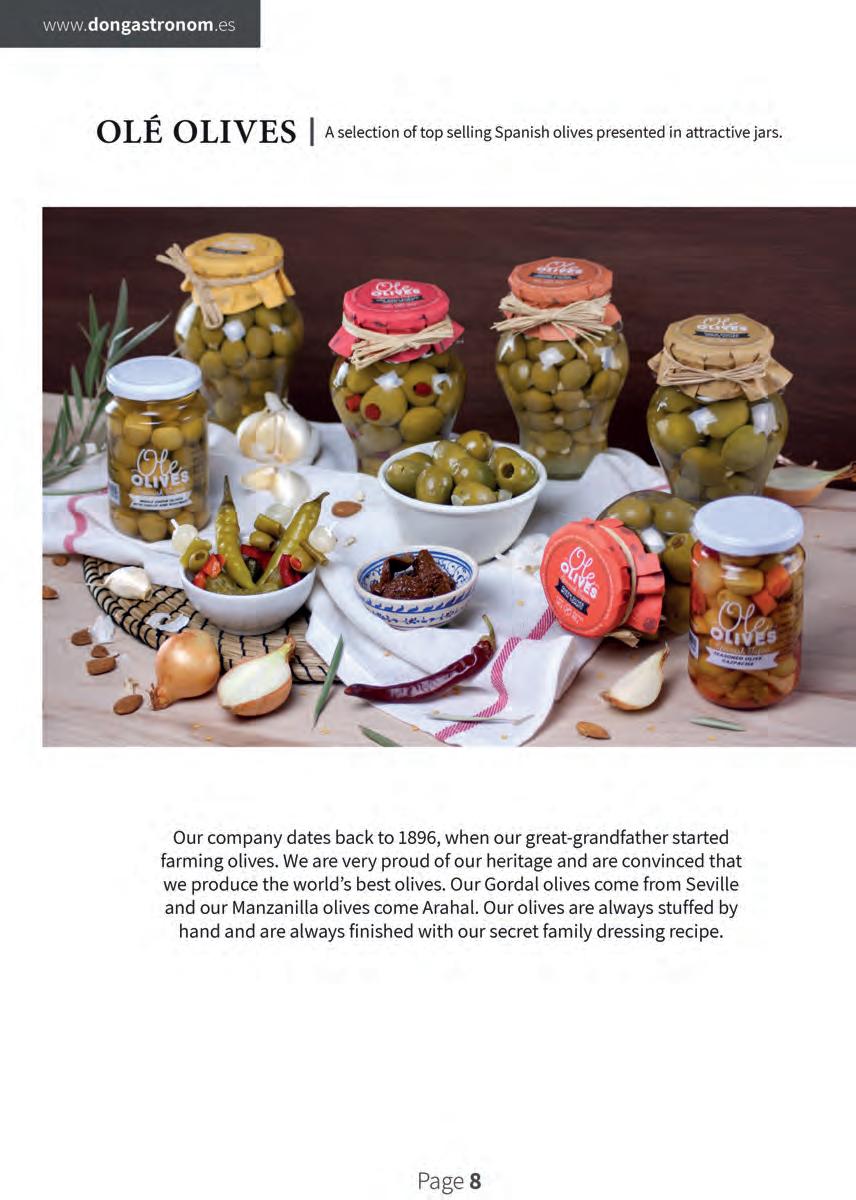



IT’S THE TAIL-END of the sixth wettest July on record, and The Balloon Tree director Tom Petch is holed up in an office on the 28-acre farm, reflecting that – while there might have been a few soggy fruit-pickers –the farm shop, café and pick-your-own farm has weathered the storm.
“It hasn’t affected us as much as it could have,” he tells FFD. “Obviously it’d be better if it was sunny – the café would be full outside as well as inside. But there are a lot of people travelling in the next few weeks to go to the coast and they hopefully stop in as well and we’ll have a good August.”
It goes to show the depth of popularity for The Balloon Tree, which is located just five miles east of York, that the summer’s monsoon-like weather hasn’t deterred the day-trippers. The business’s three-pronged model means that it has a strong experiential
VITAL STATISTICS
pull – attracting customers who want to pick their own fruit, have a light lunch in the café, or visit the farm shop. Or ideally, says Petch, all three.
“What we hope is happening is that people are coming to pick their own fruit, then get a little pot of cream from the shop, then a coffee in the café – the three parts of the business working together.”
After starting life as a pick-yourown farm, the business is now a sizeable operation with an estimated quarter of a million visitors a year.
“The Machin family have been farming it for over 35 years,” says Petch, who has worked for the business for 19 years, rising from a casual student employee to director. “Originally it was just pick-your-own fruit. And then, in 2004, they put in a building. The idea was that it was going to be a farm
shop selling the farm’s fruit and vegetables, with a bit of a token gesture café but it soon became apparent that it was a big part of the business as well.”
Such was the popularity of the café, the decision was taken to extend it – first in 2014 and then again in 2017, with the farm shop also expanding into space vacated by it. The result is a 3,500sq ft building, with a 240-cover café (120 internal and 120 outside) and a shop stocking a broad range of Yorkshire produce.
In the early days, the farm’s own produce filled the shelves but, as the fields have migrated over to soft fruits, a wider range of veg now comes from local suppliers and Bradford Market, while the team has worked hard to supplement it with the best available local produce.
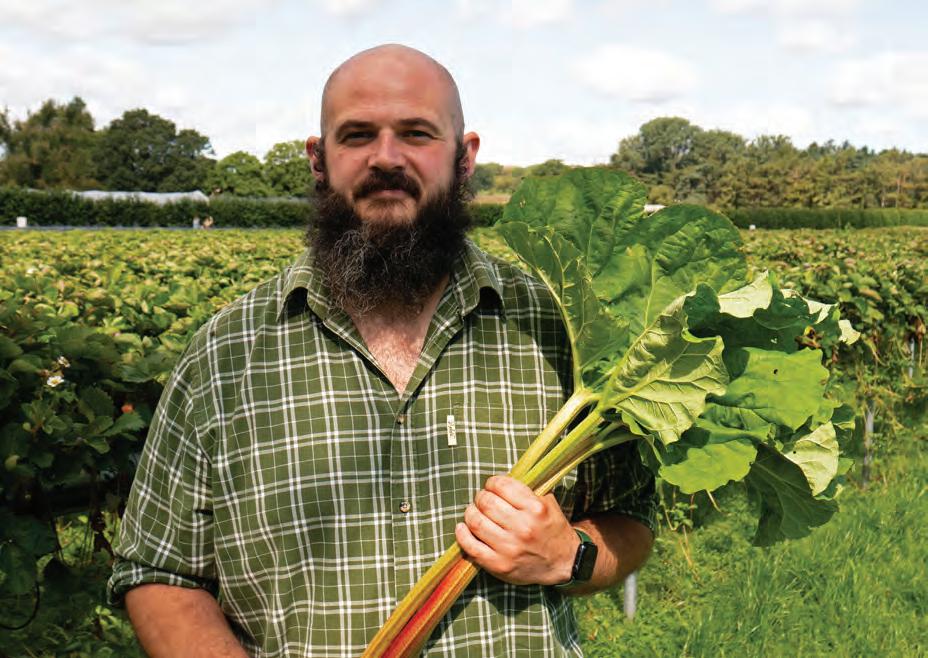
Visitors can pick up items such as
Location: Stamford Bridge Road, Gate Helmsley, York YO41 1NB
Average spend: £13.95
Retail space: 3,500sq ft
Average margin: 35%
Number of staff: 70 (high season)55 (low season)
A
shop, café and
farm, The Balloon Tree is close to celebrating 30 years in business. Here’s the story of how it grew from a simple fruit farm into a Yorkshire destination.
Yorkshire Pasta Company; granola oats and porridge from Yockenthwaite Farm in Skipton; ice-cream from Brymore Dairy in Masham; and artisan breads from Haxby Bakehouse, located just 8 miles away from The Balloon Tree. “There’s so many suppliers that we’re tapping into, we want to showcase them and sell what is good in the area.”
A popular part of the offering is the cakes made in-house by the four-strong bakery team, with a homemade soft-fruit roulade proving a perennial favourite. However, the steady rise of artisan producers nearby has had an effect on what the kitchen produces. “When we were smaller, our deli section used to be absolutely jammed with everything that we made in-house. But then it soon became apparent that there’s local people doing it better. We thought we were good but they are brilliant, so we’d rather showcase them.”
Now, visitors will also find pork pies from Voakes Pies in nearby Whixley, sausage rolls from Lishman’s of Ilkley and pastries from A. Laverack & Son in Holmeon-Spalding-Moor, all supplemented by coleslaws and grab-and-go sandwiches produced in-house.
Fresh meat is supplied by the likes of rare-breed specialists Taste Tradition in Thirsk, who provide Gloucester Old Spot pork, and free-range chicken from Soanes Poultry in Middleton-on-the-Wolds.

This is all sold from a fridge unit rather than a butcher’s counter, an offering that was introduced at the shop but, ultimately, didn’t pay off. “We had to get rid of it because it wasn’t working for us,” says Petch. “There are a lot of good butchers in our area. Some farms have their own livestock and can butcher their own meat, but we don’t. So, we went back to concentrating on what we are best known for, which is fruit and veg.”
Serving an all-day menu that spans cooked breakfasts through to sandwiches and burgers, the café can serve more than 600 covers on the busier weekends, with Father’s Day in June regularly one of the most popular.
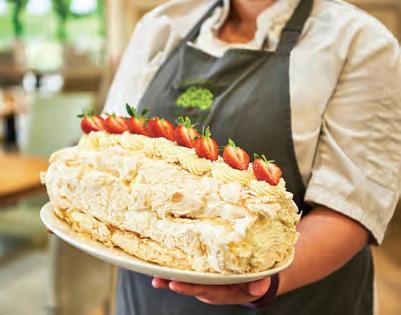
Now a destination in its own right, the café has grown to become the most profitable of the three arms of the business. “Another reason is the margins are a bit more lenient in the café than they are in the farm shop,” says Petch. “In the farm shop, we operate at somewhere between 30 and 40% – although with fruit and veg you can obviously can get a bit more – whereas the café is just that bit more flexible.”
As you might expect from a business with on-site pick-your-own, footfall fluctuates with the seasons. Early summer is a particularly strong time as the soft fruits begin to arrive. And then business can stay strong through into early September, before dipping and then picking up strongly in October. “Pumpkin season is massive for us. We can shift a good 12,000-13,000 Pumpkins. How that’s grown is absolutely ridiculous.”
The winter months will quieten down and staff numbers – which include a lot of casual student labour in the high-season –drops from 70 to around 55.
As the dust settles from Covid, the business has only just been able to get a handle on growth, with lockdown and the bounce coming out of it muddying the waters.
“We’re looking at our P&L reports, comparing this year to last year, and we’re starting to even out a little bit. Everything was looking dire last year as 2021 was an absolute brilliant year for our industry.
“But, so far, we’re up on last year now,
MUST-STOCKS
Baker Simon’s Seasonal Roulade (in-house)
Baker Lizzie’s Mature Cheddar & Fresh Chive Scones (in-house)
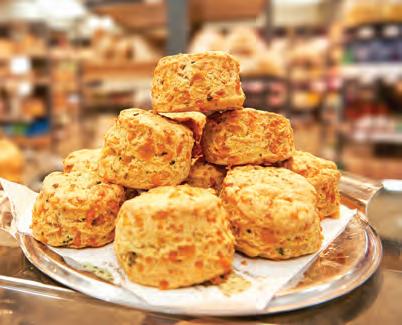
Chef Andy’s Sultana & Carrot Coleslaw (inhouse)
Greyley’s Jersey Milk

Brown’s free-range Jumbo Eggs
The Yorkshire Pasta Company’s Tortiglioni Pasta
Sloemotion Distillery’s Hedgerow Gin
Laverack & Son’s Sausage Roll
Haxby Bakehouse’s Sourdough Loaf
Taste Tradition’s Rare Breed Belly Pork
Farmer Hobson’s Carrots
Brymor’s Amarena Black Cherry Whim Wham Ice Cream
Yockenthwaite Farm’s Just Ginger Granola
Lishman’s Dry-Aged Salami
Voake’s Giant Pork Pies
and that’s where we want to be, we’ve got to put 2021 aside and focus on growing from pre-Covid levels.”
It’s a situation that is made all the more challenging by the cost-of-living crisis and rising energy bills, which has driven up supplier costs and forced the Balloon Tree to put up their own prices. Despite its location in a relatively affluent area, Petch said comments have already been made about the rising prices, adding that the business wants to stick to its guns for as long as possible.
“Take our meat as an example,” he says. “We could go and look at a different supplier that could provide us with cheaper meat but then we’d be sacrificing quality. We’ll
maintain it for as long as we can. Obviously, if it doesn’t shift because of price and there’s an issue, then we’d have to look at that elsewhere.”
Historically, the least profitable part of the business has been the pick-yourown, and it is a situation that has been compounded over the last year. “The justification for having the farm is that it’s a very good marketing tool in bringing people into the shop and café.



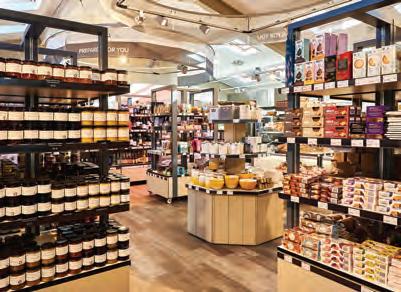
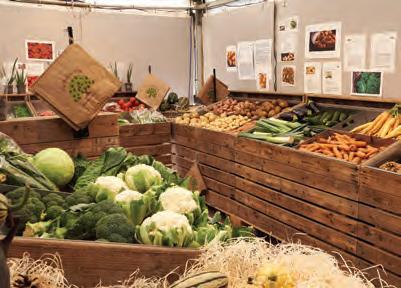
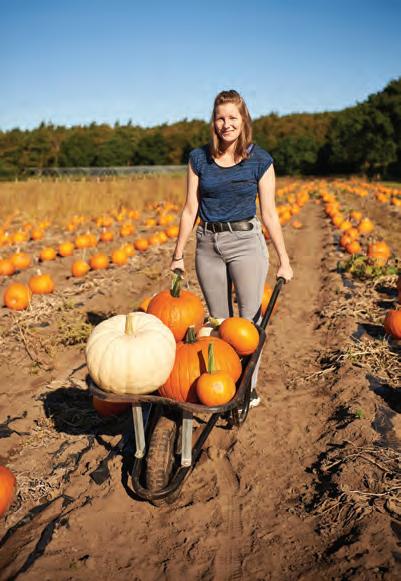
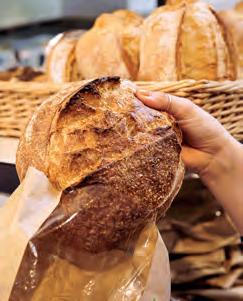
Year on year, it’s lost a little bit but we’ve viewed that as our marketing budget. But that loss has really shot up in the last year because of the cost of everything going up.”
As a result, the team had to take the
decision to charge a £1.50 picker’s fee for the first time, something they have been trying to avoid over the years. “It’s been met with mixed reviews. But the fundamentals of it are that if we don’t try things like that, the farm’s not going to be there in two years.”

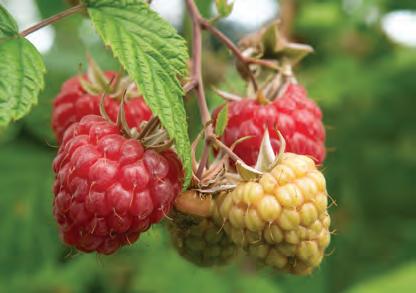
The café might be the most profitable and the farm the most precarious, but Petch believes that the business model relies on all three parts of the operation.


“I don’t know if the other two would survive if we lost one. They are very much entwined. We need all those aspects of the business – or branches of the tree, if you like – to be The Balloon Tree.” theballoontree.co.uk

We’ve got to put 2021 aside and focus on growing from pre-Covid levels.
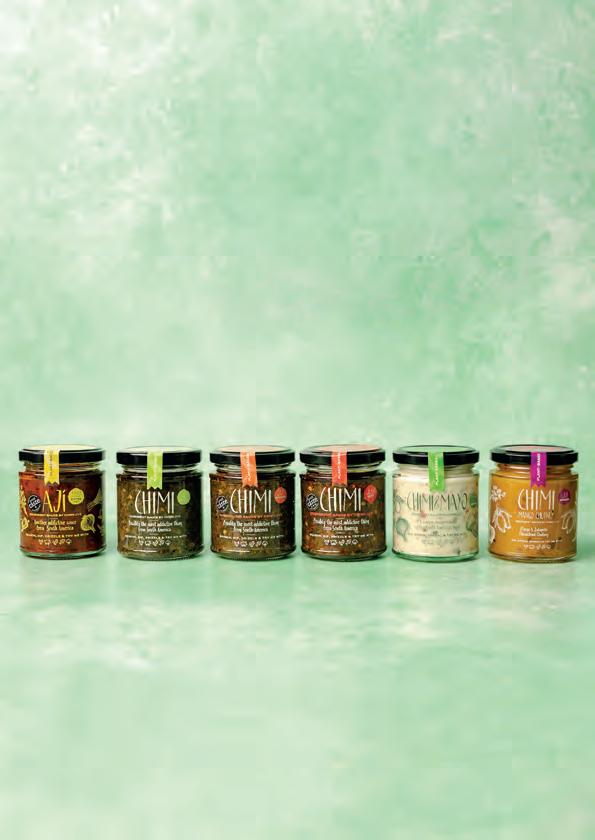




















They say a picture paints a thousand words and this is especially true with food. We buy with our eyes particularly online. So, now is the time to ensure your products stand out on the screen. You need to make customers want your product. If your competitors are doing this better than you, be prepared to lose sales to them. But what are the critical factors determining the creation of mouth-watering content for your website and social media platforms?
•Staying on brand – ensure your images reflect your brand and effectively showcase what you do.
•Decide how and where the images are being used. For advertising? Social media? PR? Website? Once you have a clear appreciation of what you are aiming for you, you can decide what message you need to convey via the imagery.
•Embrace the power of seasonal content so that you are able to demonstrate that you are firmly in touch with consumer trends and lifestyles.
•Always provide the photographer with a written brief so that there is a clear and concise record of the vision that you are looking to create. A brief is also vital as an internal document.

So, I wanted to talk to you about changing the rota around on the second week of March 2025. I can’t work on that Thursday because it’s my second cousin’s birthday.
I haven’t even done the rota for next week yet
•When shooting, bear in mind the need for images to be used in multiple ways, so shoot in both portrait and landscape formats as well as varying sizes.
The benefits of high-quality images are huge. You are more likely to secure press coverage with a strong image. It turns your social media into a shop window – and it will also be shared for engagement with potential new customers.
There are a number of photography courses you can take, but I say this with caution. It is important to weigh up the hours invested in generating content (when you are on a steep learning curve) versus paying someone who is a proven expert with easy access to props and backdrops. Trust us, the cost of buying these things soon adds up.
Sometimes it is better to pay for a skill that is not within your team and allow your colleagues to focus on what they do best.
If you would like any further tips and advice, please feel free to download our free photography guide at thefoodmarketingexperts.co.uk/foodphotography-guide/ or give us a call to chat through your requirements.
Fruits and vegetables that are not supplied as ready-to-eat must be treated as a potential source of contamination.
To make them safe to eat, they will need to undergo an adequate washing and processing treatment (for example peeling, washing or cooking). Soil in which fresh produce grows can become contaminated with bacteria which can transfer to fruits and vegetables. Root crops and leafy vegetables are likely to have the most soil on the outside.
Fresh produce that is not supplied as ready-to-eat is to be handled, stored and displayed in such a way that it does not contaminate ready-to-eat foods.
Special attention is required when storing soiled vegetables to ensure they do not contaminate other produce that is likely to be consumed raw (e.g. strawberries).
This advice is an excerpt from the Guild of Fine Food’s Assured Code of Practice for Deli Retailing. The guide is available in PDF format (free for Guild members, £250+VAT for nonmembers) To request a copy of the Code, email support@gff.co.uk
So, I have a question about our pensions. Do you know if the fund’s investment policy is entirely ethical? And when can I take early retirement?
Can’t I just, you know, stack some shelves for once?
Mr Deli, David stole my lunch from the staff fridge again.


Prove it, Daisy. Prove it!
I really need to buy that book on conflict resolution.
FFD says: Retailing may be what you signed up for but, in reality, running a shop means you will also have to assume the role of HR director. There’s a reason that larger companies have dedicated staff to handle the variety of queries that fall under this remit – but most in our sector don’t have this luxury. Even if you’re good with people, it might be worth looking at outsourcing some of the more difficult and specialised tasks.
The benefits of highquality images are huge. It turns social media into a shop window
Special attention is required when storing soiled vegetables

